

According to the Pew Research Center, only about 1 in 4 Americans read a book in the last year. That statistic includes e-books and audiobooks, not just the printed word.
While literacy is a basic goal of education systems worldwide, instilling the desire to read is more complicated. The vast majority of American adults are able to read and write fluently in English, yet far fewer actually use their abilities to read anything beyond the messages on their smartphones and work emails.
The value of reading a novel can be debated, although studies have shown reading improves intelligence, enhances memory, expands vocabulary, and reduces stress. While the shift to digital books is still changing the publishing industry, it is clear that continuing to embrace reading is important for our nation’s youth.
24/7 Wall St. reviewed a number of measures associated with literacy to determine which American metropolitan areas are most likely to read books on a regular basis. These include the presence of public libraries in a city, residents’ education level, and the presence of higher learning institutions. The best-read cities range from small cities like Ithaca, New York to major metropolitan centers like New York CIty and Boston.
According to Pew’s research, households with higher incomes are significantly more likely to read books on a regular basis. In most of the metropolitan areas to make this list, the typical household income well exceeds the national median household income.
According to the same Pew study, approximately 1 in 5 Americans have never visited a library. And slightly less than half of all Americans have been to one in the past year.
Educational attainment has a significant impact on how likely Americans are to read on a regular basis. Almost 60% of those with a college education visited a library within the last 12 months, but that figure drops to less than 40% for those with no more than a high school diploma.
Click here to see the 50 most well-read cities in America
To determine the most well-read cities in America, 24/7 Wall St. reviewed a number of measures associated with literacy to determine which American metropolitan areas are most likely to read on a regular basis. Our estimate for the number of public libraries per 100,000 people is based on library listings in the American Library Directory, population estimates are the most recent available, and are from the U.S. Census Bureau. We also looked at education levels and income figures, from the Census Bureau’s 2016 one-year American Community Survey. The number of college and universities in the surrounding county of each city came from the U.S. Department of Education. All age estimates are just that — estimates.
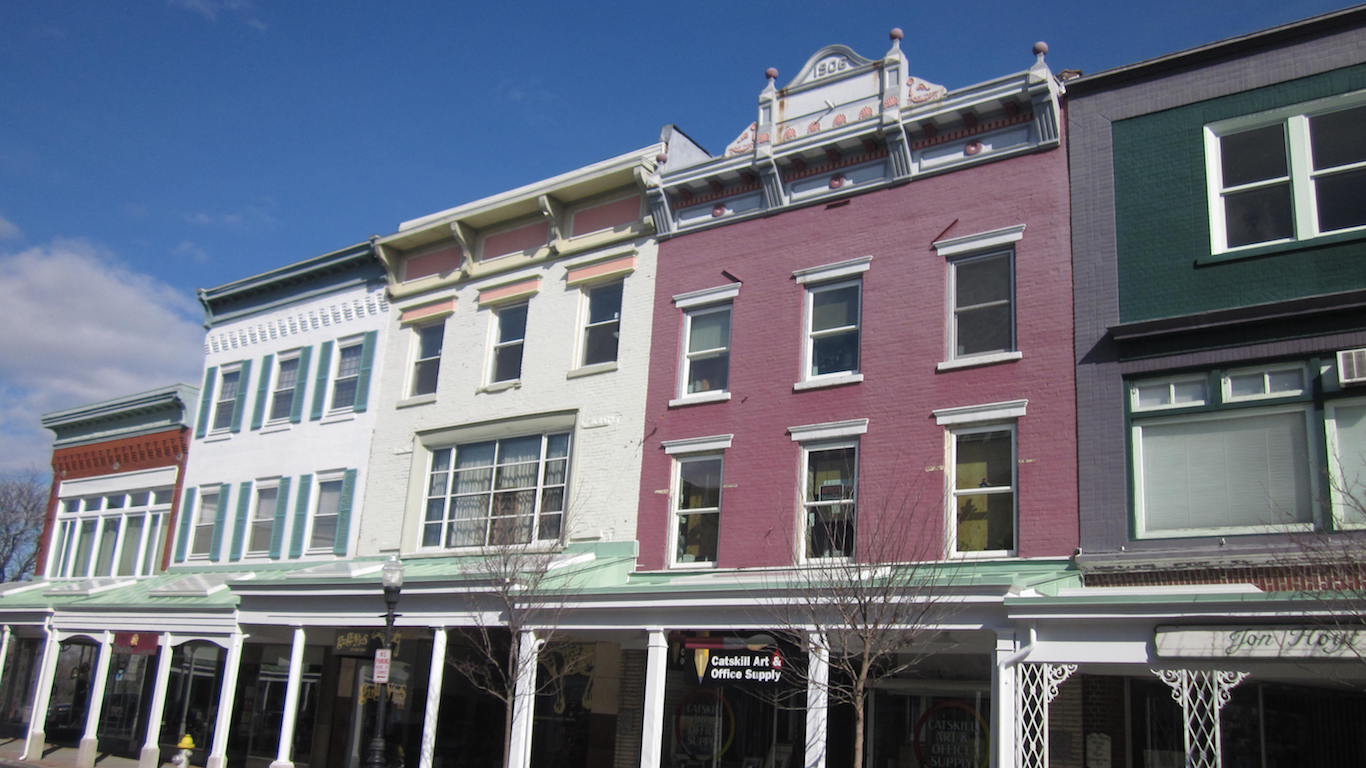
50. Kingston, NY
> Libraries per 100,000 residents: 13.9
> Public libraries: 25
> Colleges and universities: 3
> Adults with high school diploma: 90.6%
[in-text-ad]
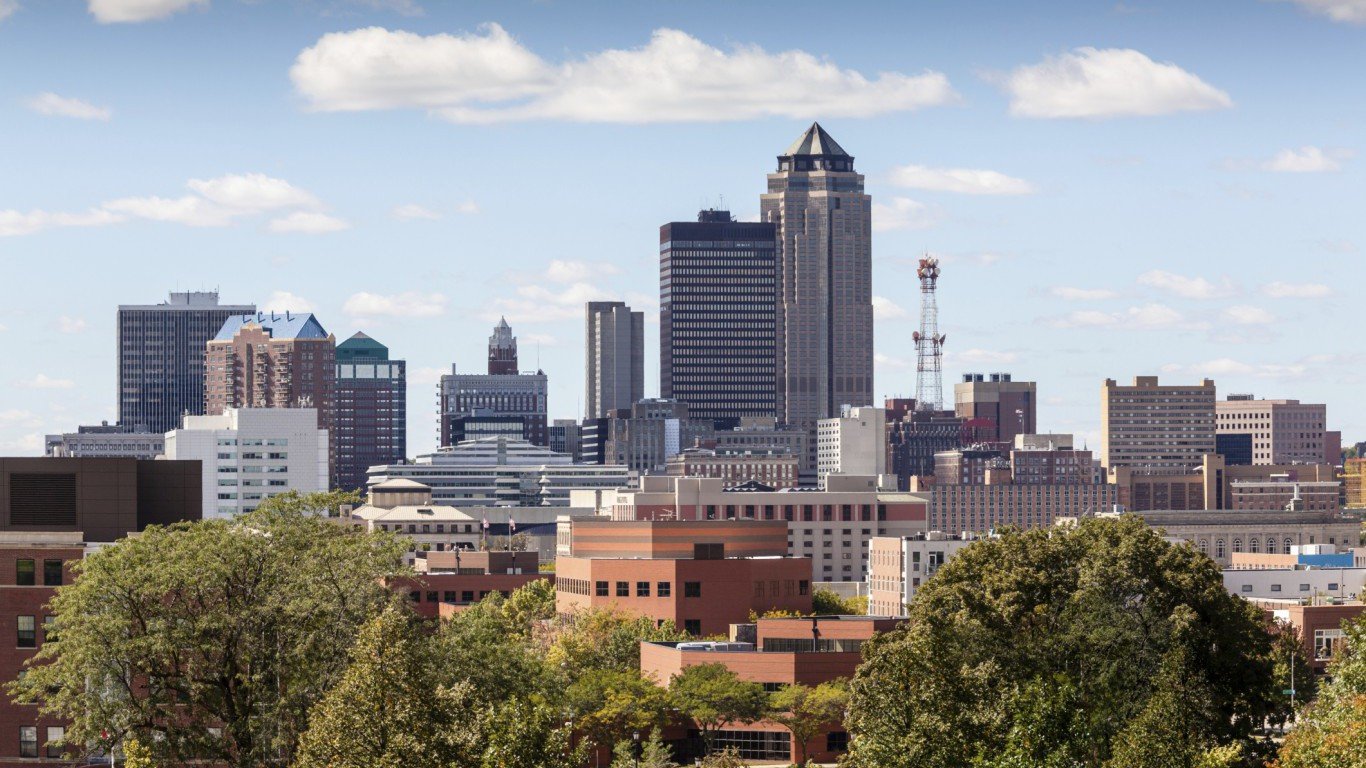
49. Des Moines-West Des Moines, IA
> Libraries per 100,000 residents: 11.8
> Public libraries: 75
> Colleges and universities: 17
> Adults with high school diploma: 91.9%
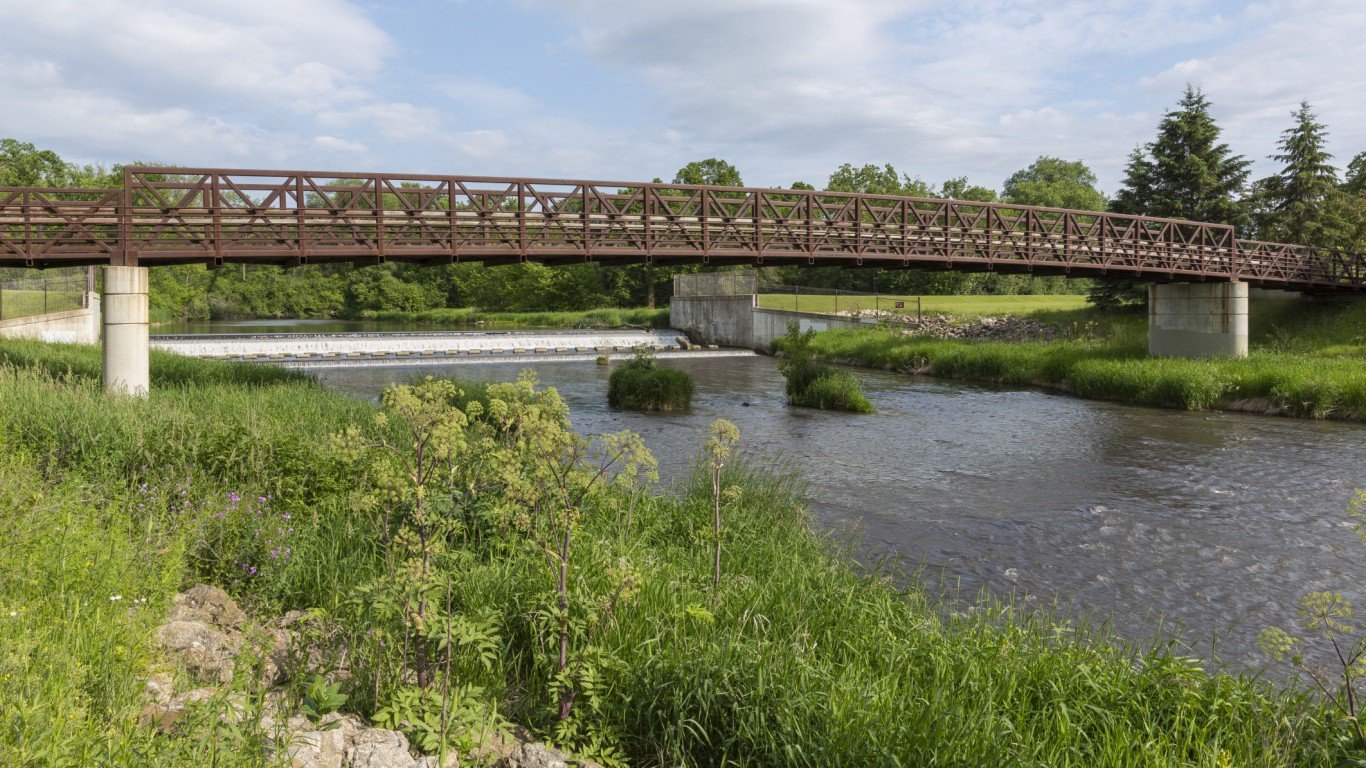
48. Rochester, MN
> Libraries per 100,000 residents: 11.6
> Public libraries: 25
> Colleges and universities: 10
> Adults with high school diploma: 93.1%
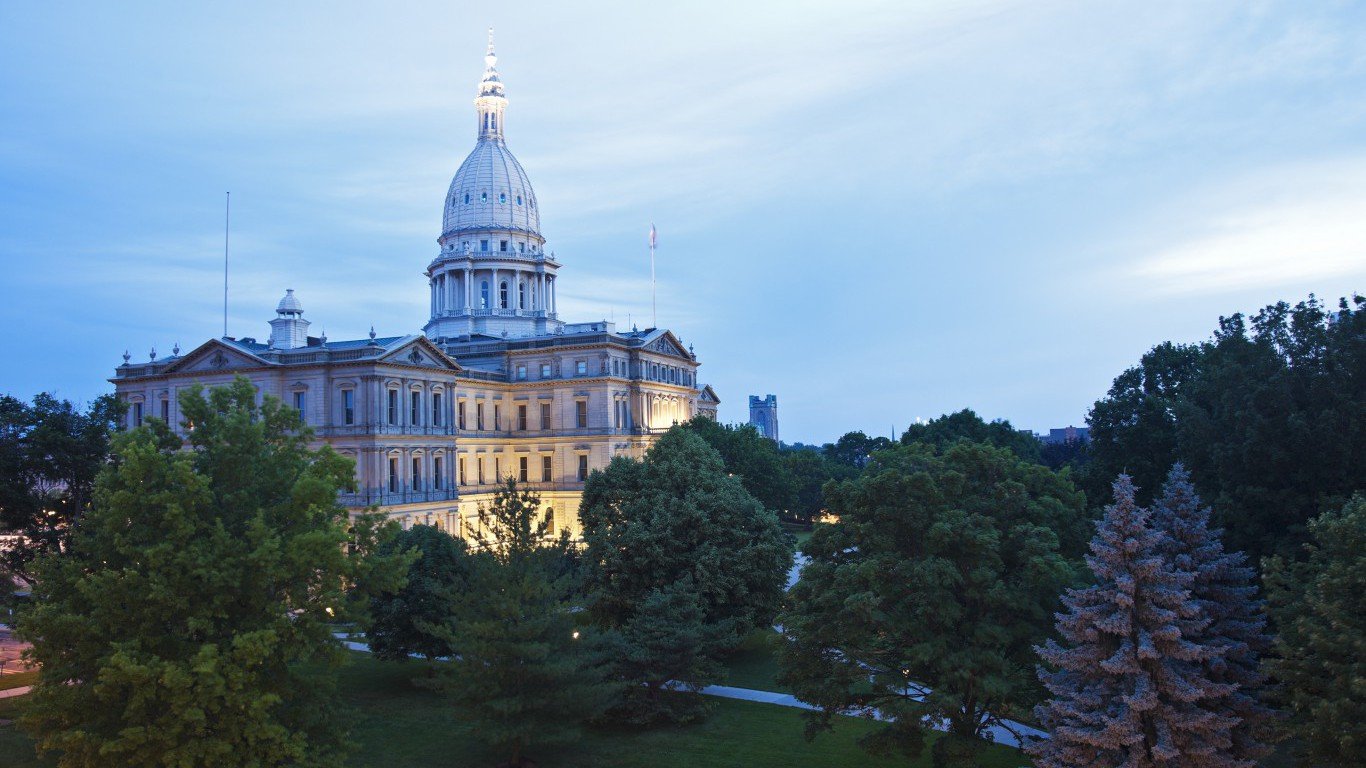
47. Lansing-East Lansing, MI
> Libraries per 100,000 residents: 12.4
> Public libraries: 59
> Colleges and universities: 12
> Adults with high school diploma: 92.9%
[in-text-ad-2]
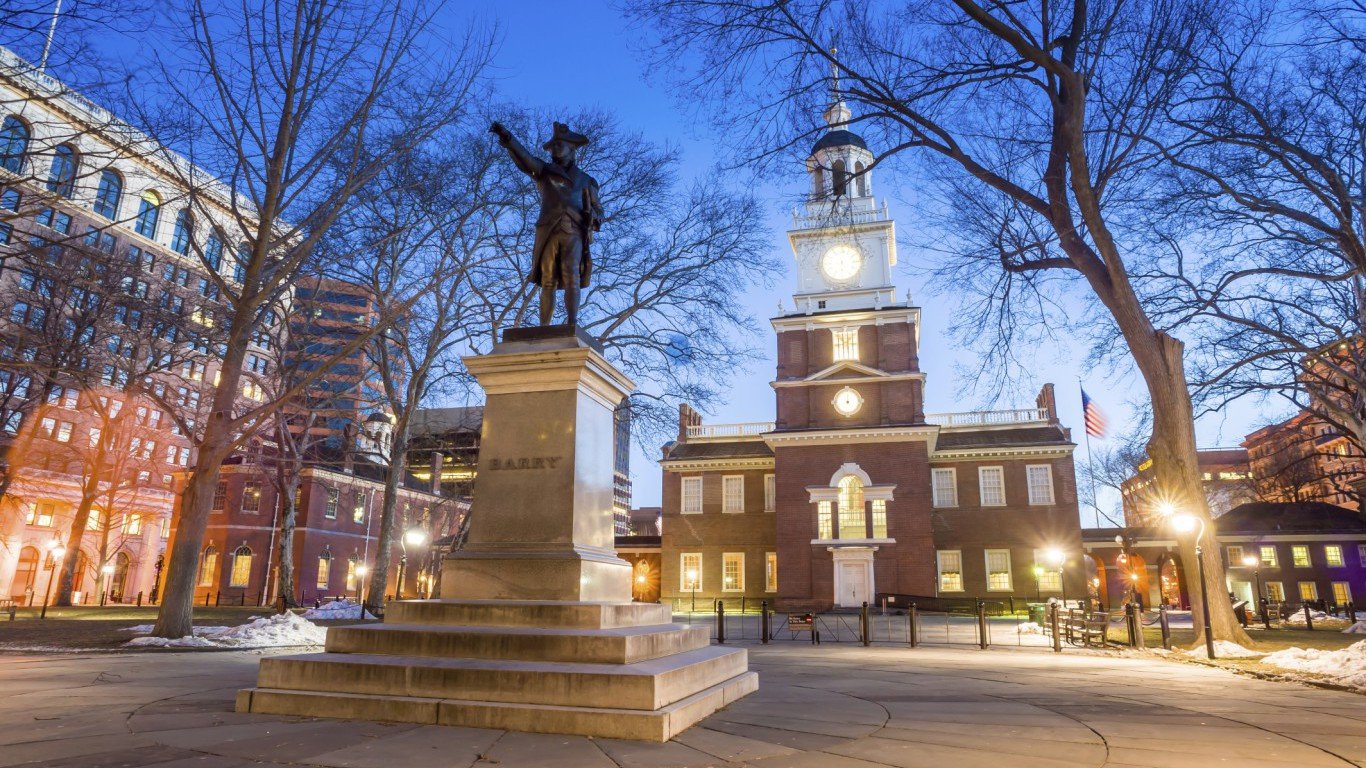
46. Philadelphia-Camden-Wilmington, PA-NJ-DE-MD
> Libraries per 100,000 residents: 8.2
> Public libraries: 499
> Colleges and universities: 162
> Adults with high school diploma: 90.2%
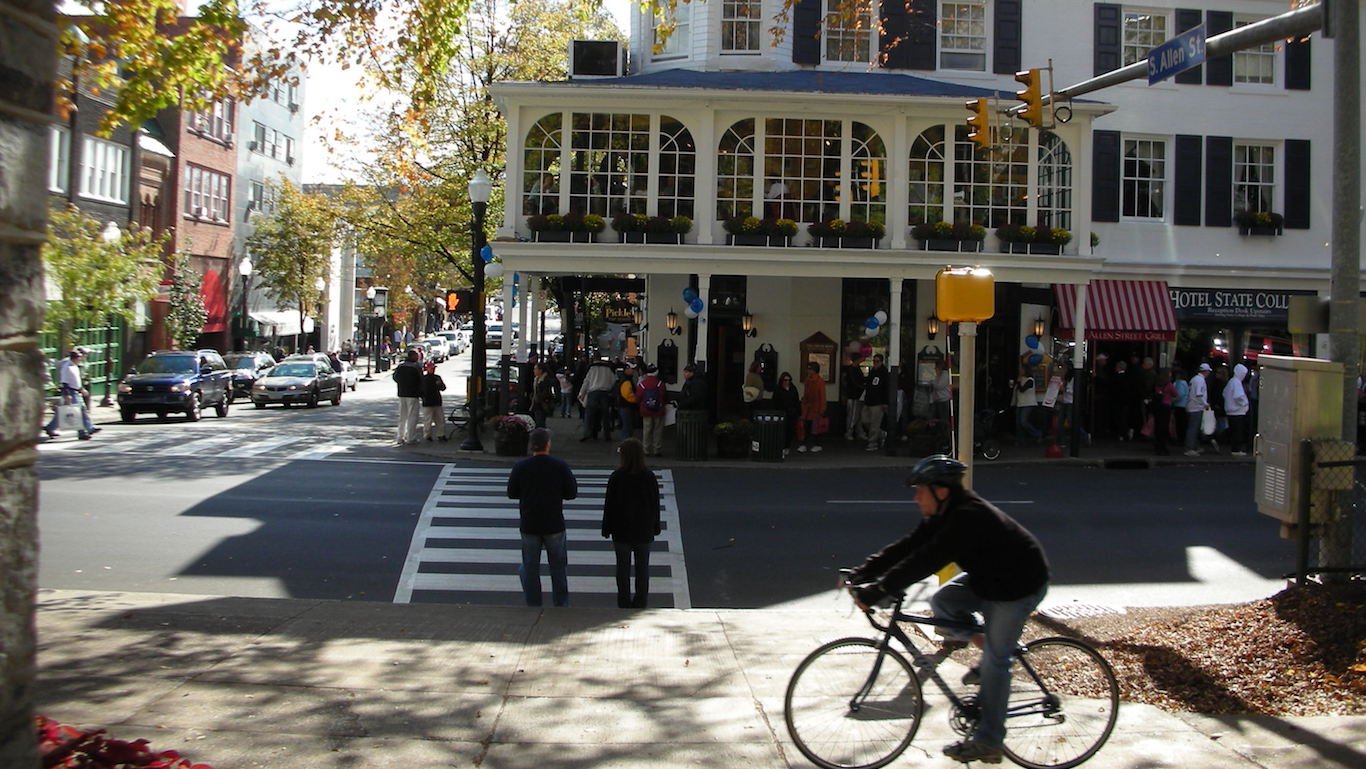
45. State College, PA
> Libraries per 100,000 residents: 8.1
> Public libraries: 13
> Colleges and universities: 5
> Adults with high school diploma: 95.2%
[in-text-ad]
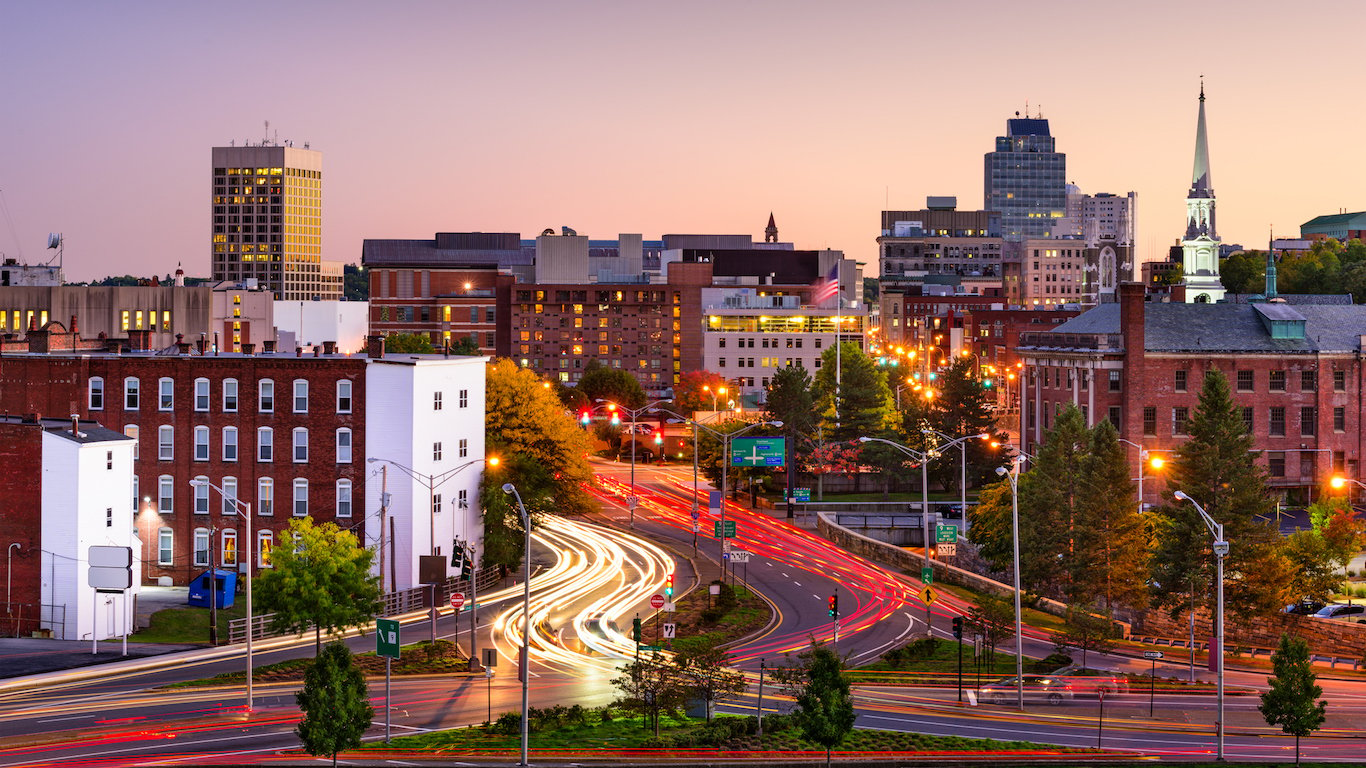
44. Worcester, MA-CT
> Libraries per 100,000 residents: 14.0
> Public libraries: 131
> Colleges and universities: 27
> Adults with high school diploma: 89.7%

43. San Francisco-Oakland-Hayward, CA
> Libraries per 100,000 residents: 8.0
> Public libraries: 374
> Colleges and universities: 97
> Adults with high school diploma: 88.7%
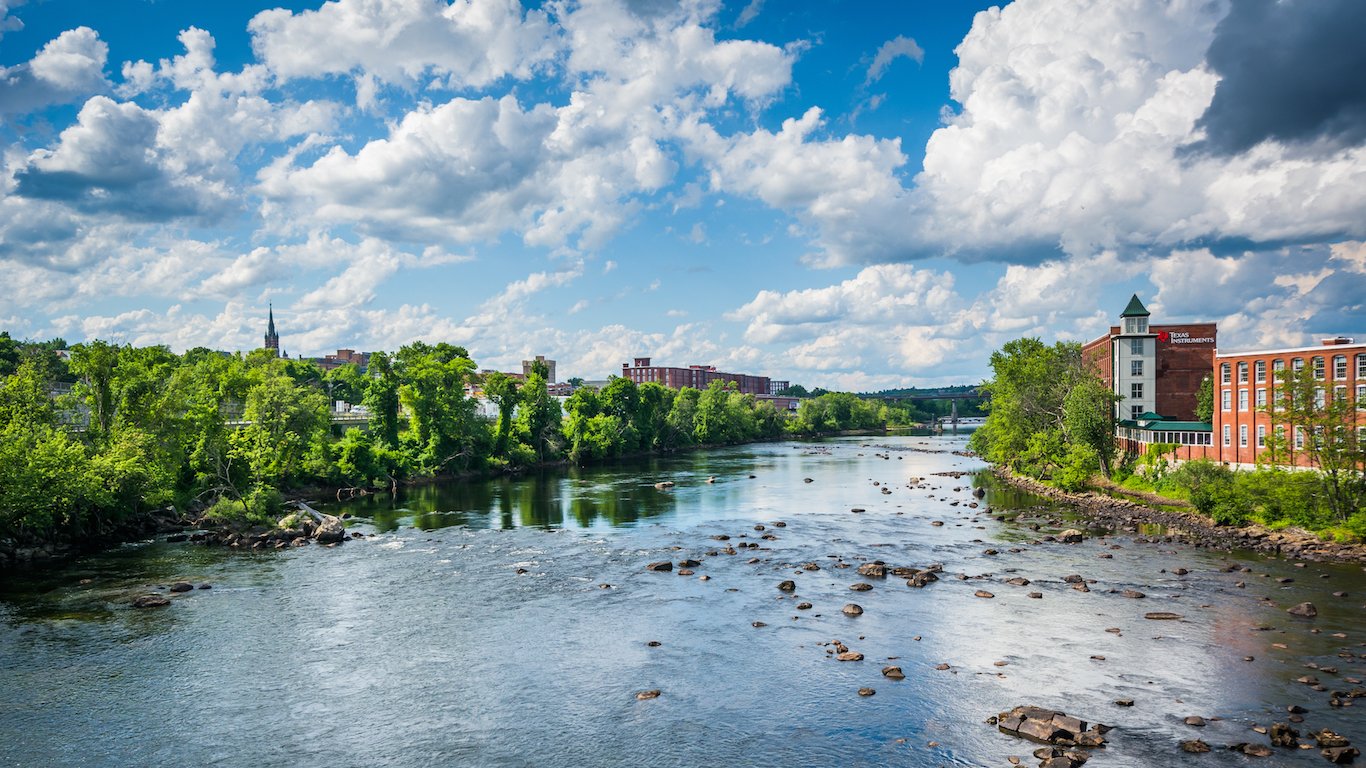
42. Manchester-Nashua, NH
> Libraries per 100,000 residents: 13.0
> Public libraries: 53
> Colleges and universities: 17
> Adults with high school diploma: 91.5%
[in-text-ad-2]
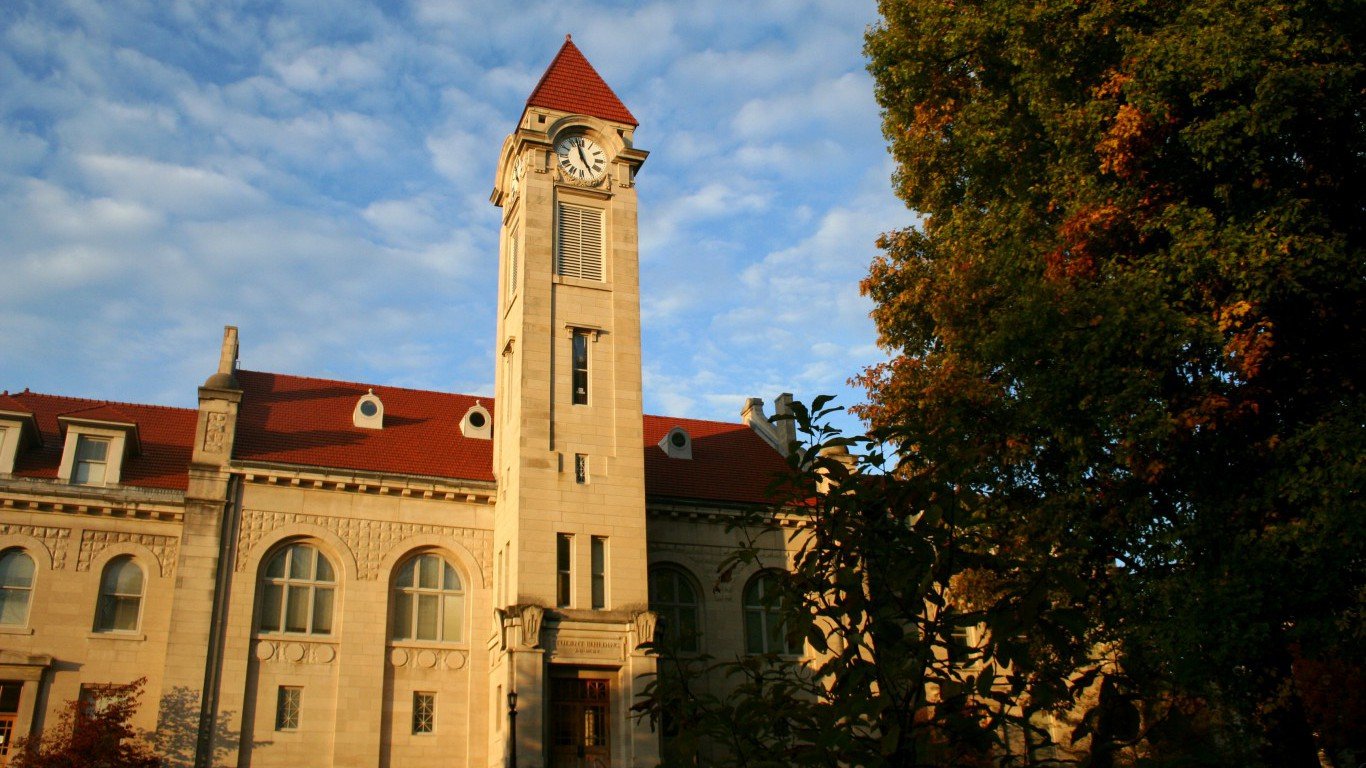
41. Bloomington, IN
> Libraries per 100,000 residents: 13.8
> Public libraries: 23
> Colleges and universities: 2
> Adults with high school diploma: 90.0%
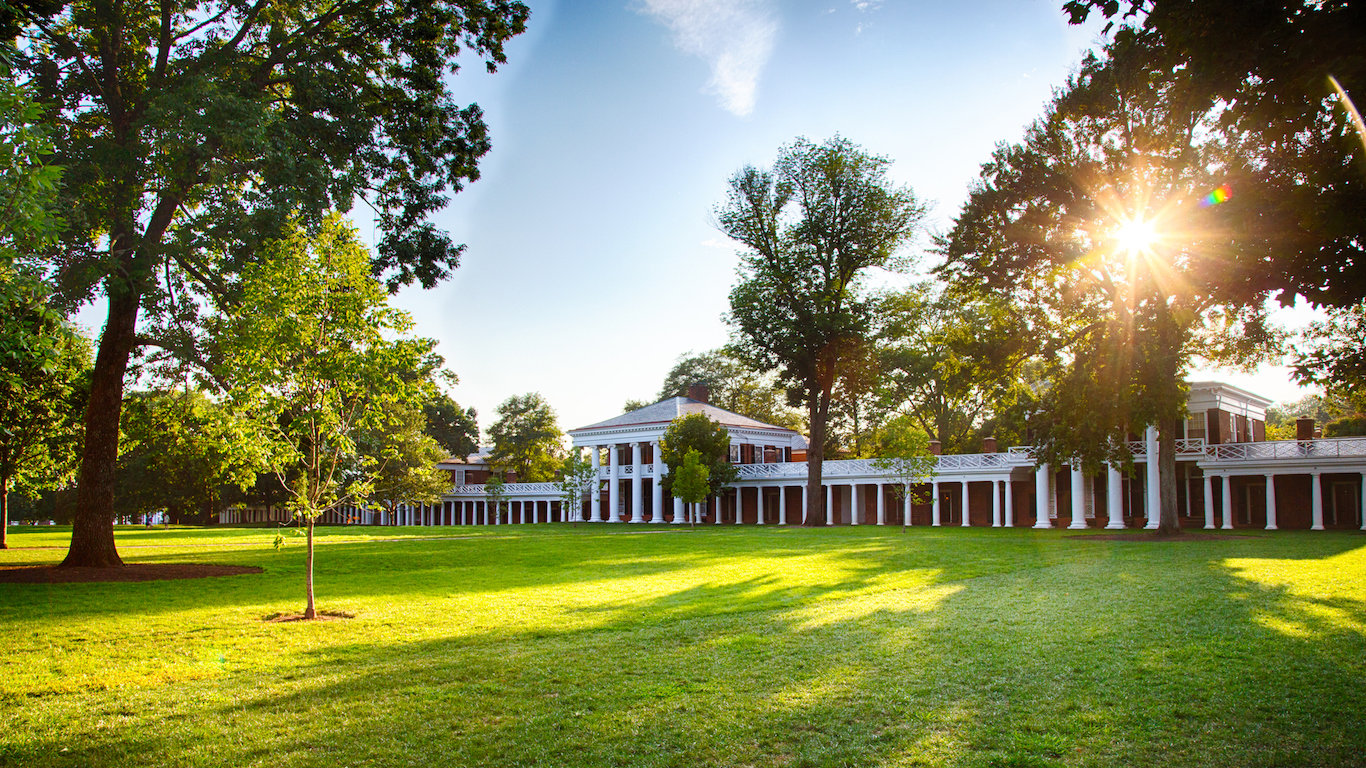
40. Charlottesville, VA
> Libraries per 100,000 residents: 13.0
> Public libraries: 30
> Colleges and universities: 3
> Adults with high school diploma: 88.5%
[in-text-ad]
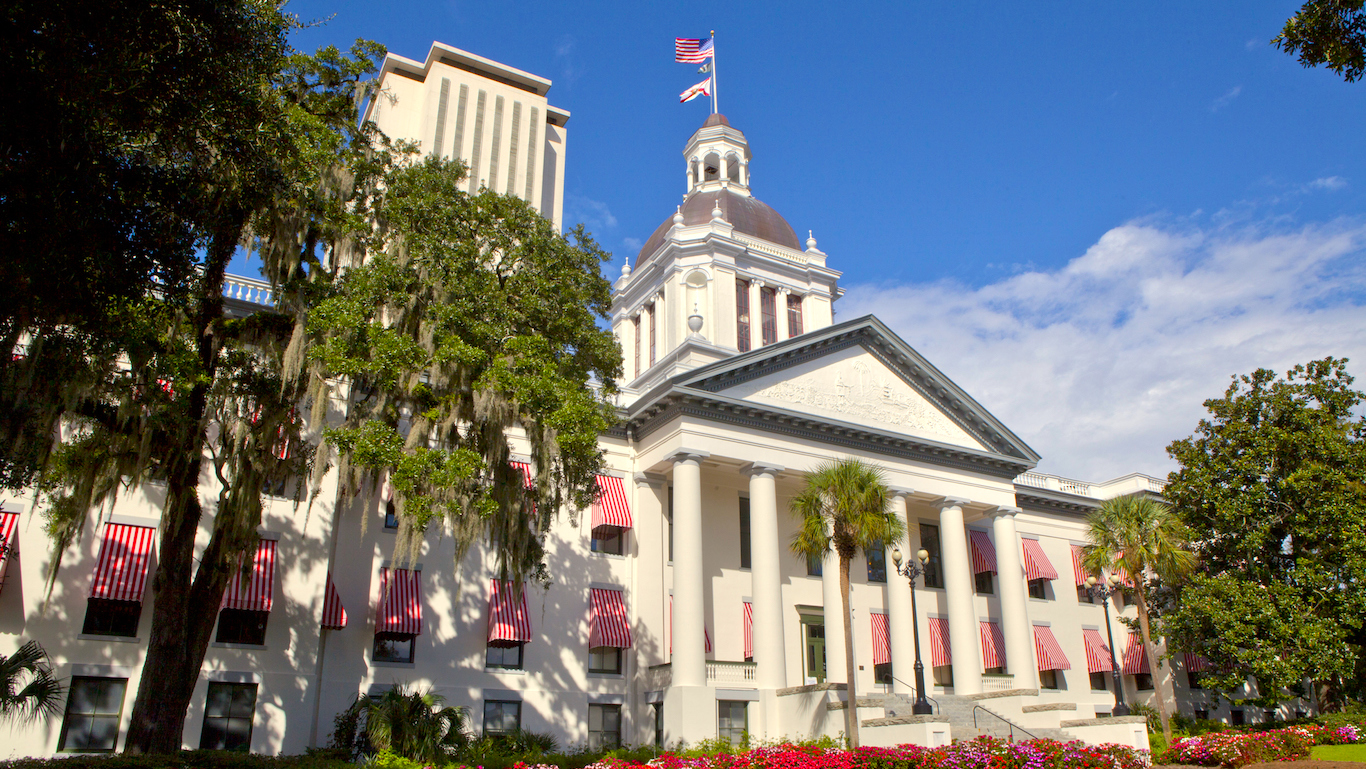
39. Tallahassee, FL
> Libraries per 100,000 residents: 13.7
> Public libraries: 52
> Colleges and universities: 8
> Adults with high school diploma: 90.0%

38. Johnstown, PA
> Libraries per 100,000 residents: 17.8
> Public libraries: 24
> Colleges and universities: 10
> Adults with high school diploma: 91.9%
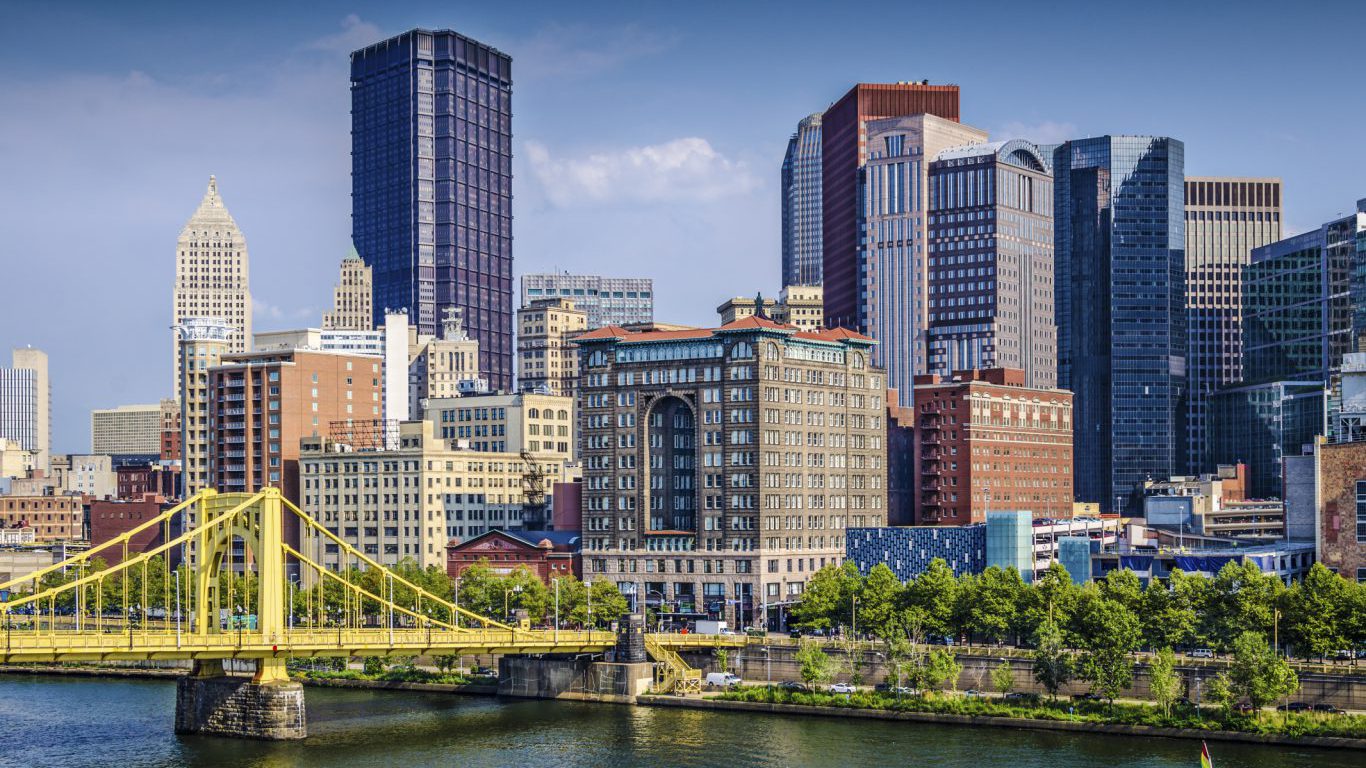
37. Pittsburgh, PA
> Libraries per 100,000 residents: 11.0
> Public libraries: 257
> Colleges and universities: 84
> Adults with high school diploma: 93.5%
[in-text-ad-2]
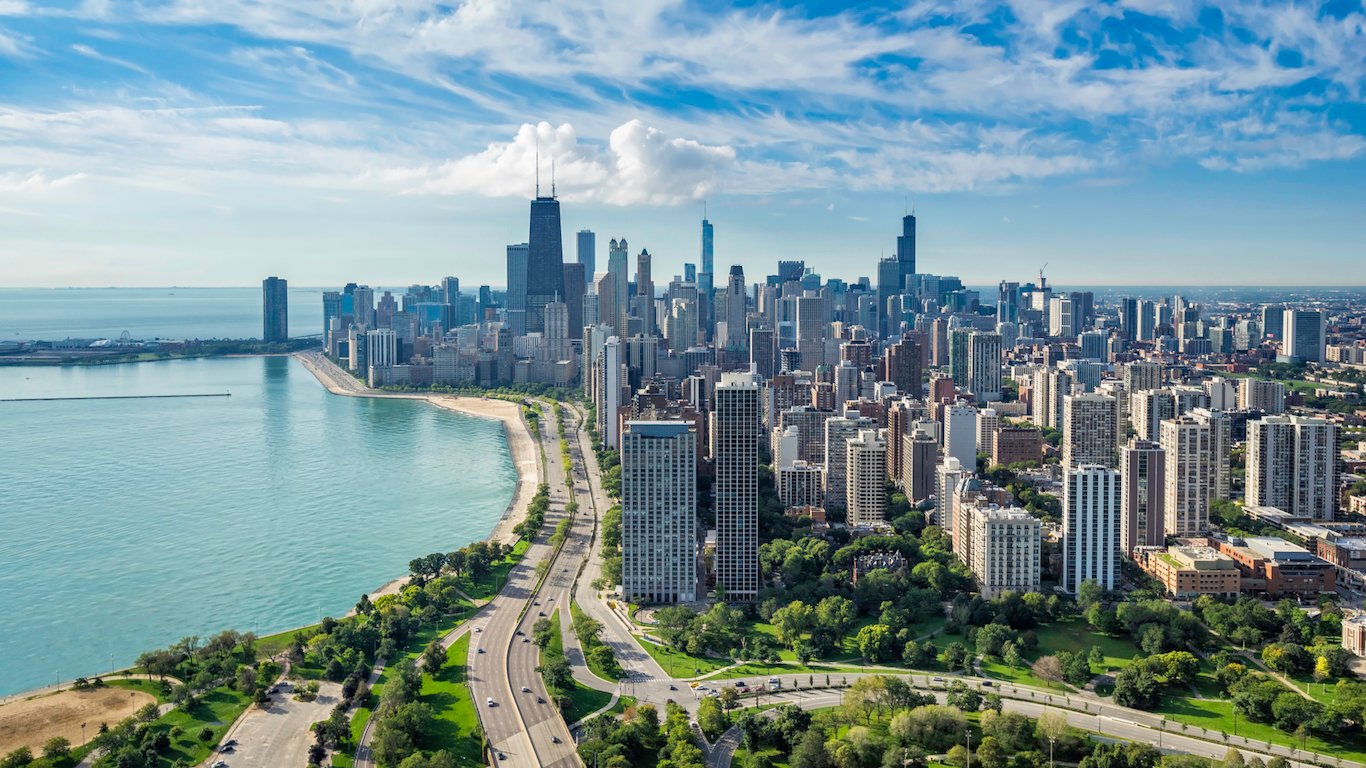
36. Chicago-Naperville-Elgin, IL-IN-WI
> Libraries per 100,000 residents: 7.4
> Public libraries: 706
> Colleges and universities: 236
> Adults with high school diploma: 88.2%
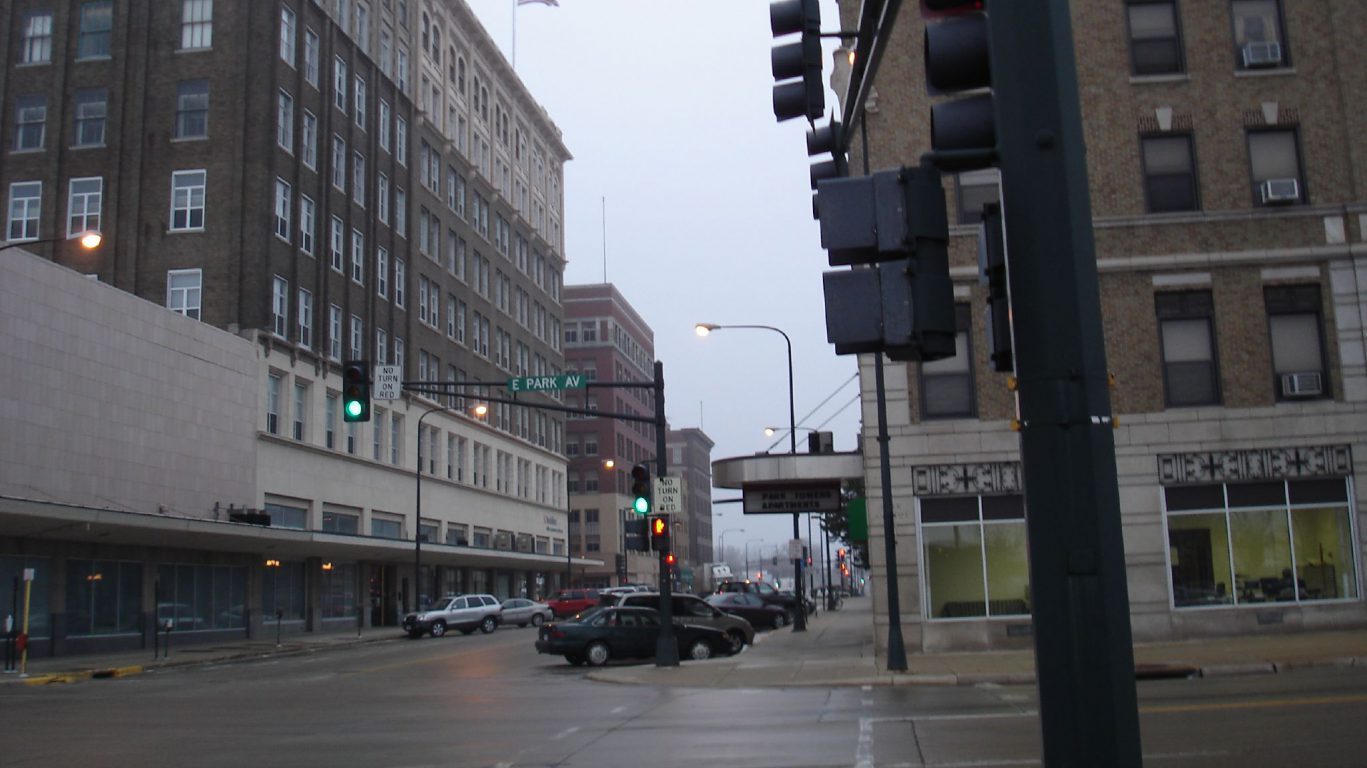
35. Waterloo-Cedar Falls, IA
> Libraries per 100,000 residents: 16.5
> Public libraries: 28
> Colleges and universities: 7
> Adults with high school diploma: 92.3%
[in-text-ad]
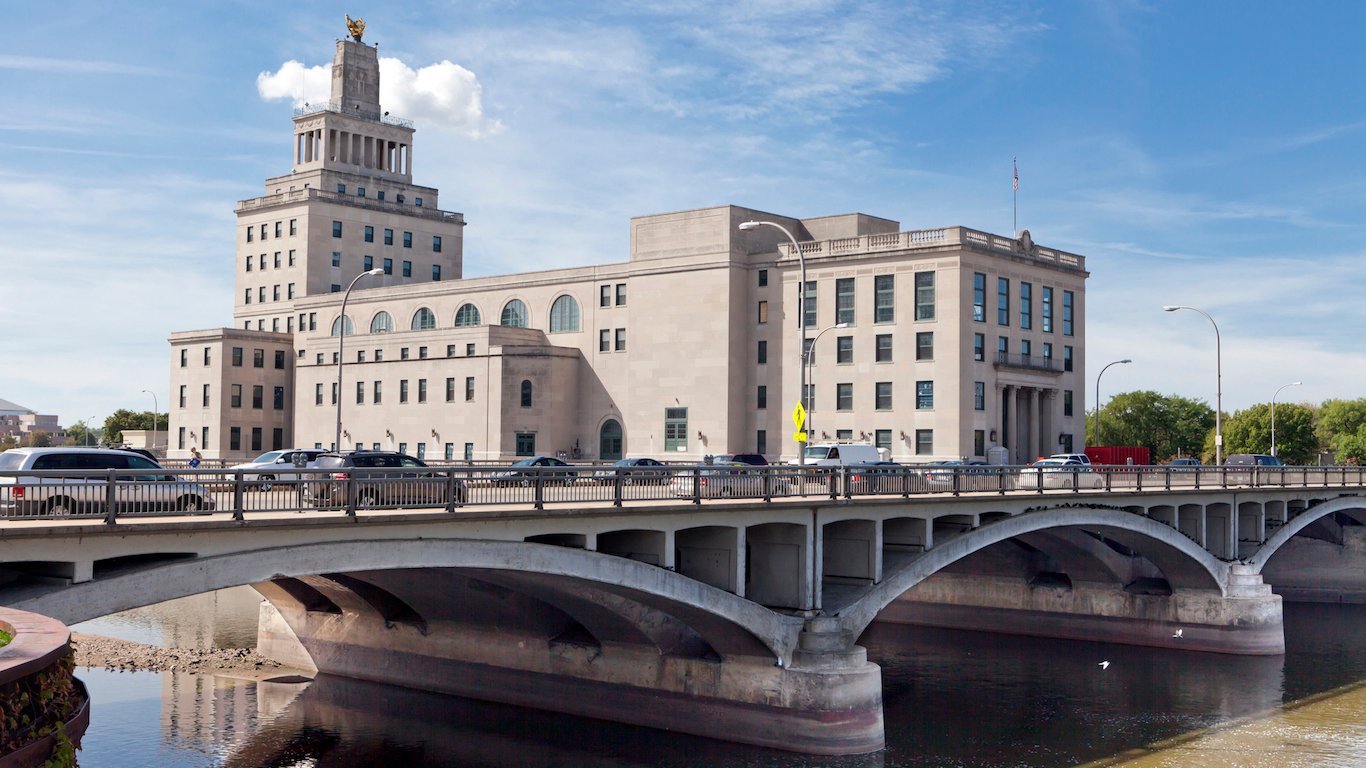
34. Cedar Rapids, IA
> Libraries per 100,000 residents: 14.6
> Public libraries: 39
> Colleges and universities: 10
> Adults with high school diploma: 94.0%
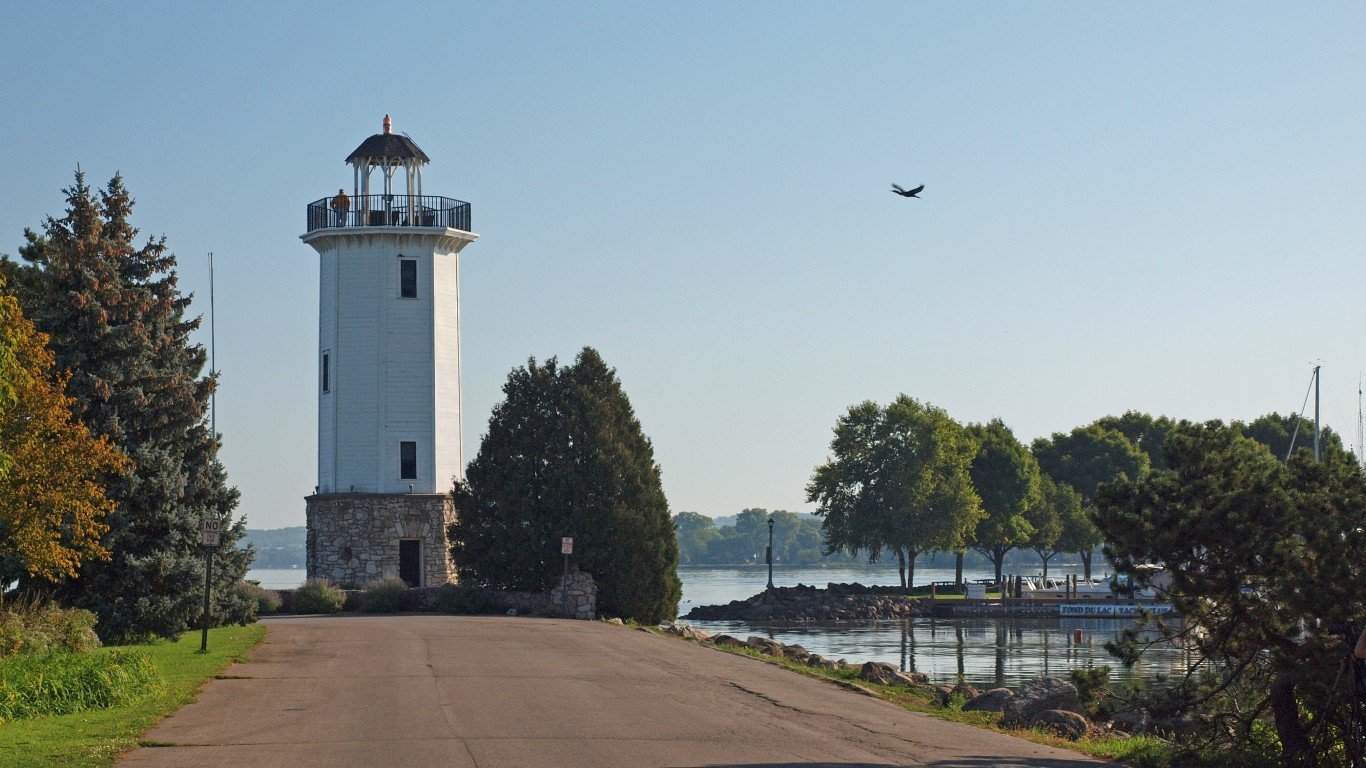
33. Fond du Lac, WI
> Libraries per 100,000 residents: 18.6
> Public libraries: 19
> Colleges and universities: 3
> Adults with high school diploma: 91.5%
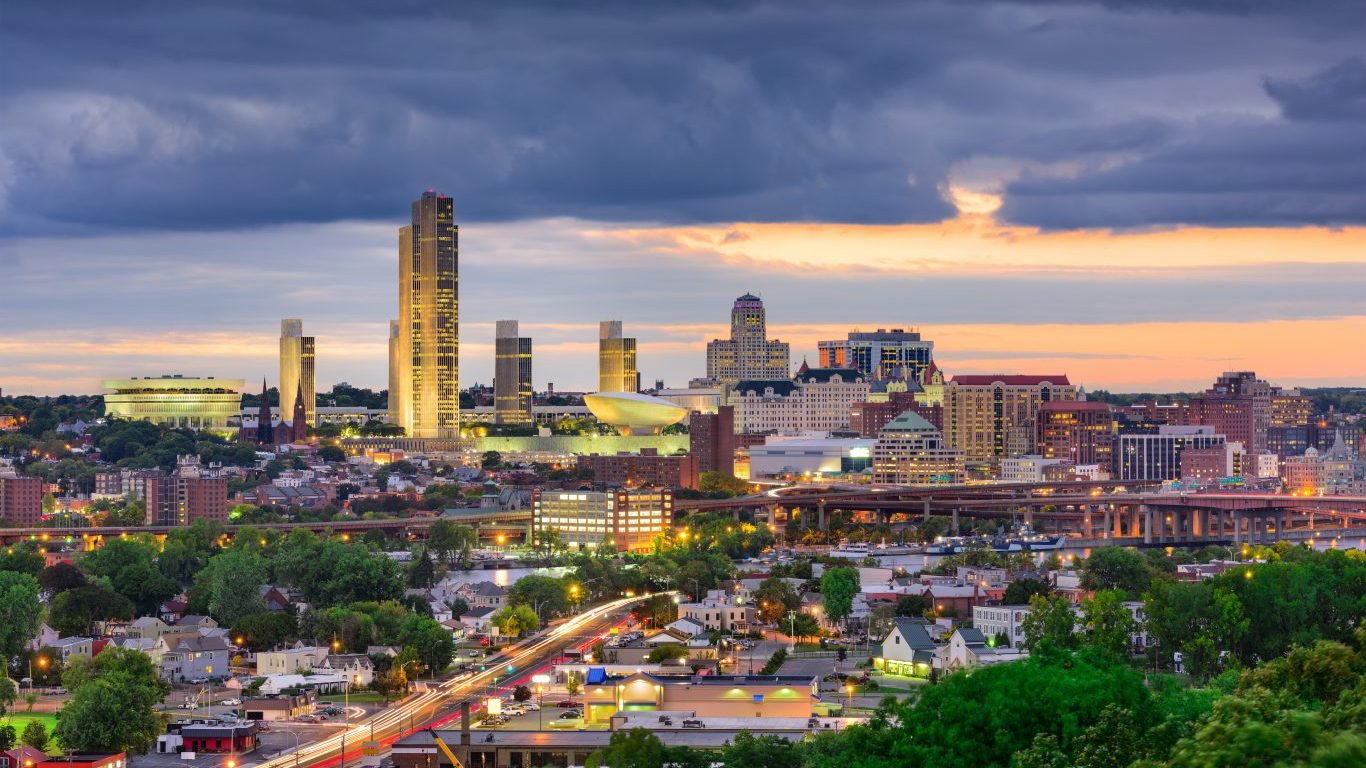
32. Albany-Schenectady-Troy, NY
> Libraries per 100,000 residents: 13.5
> Public libraries: 119
> Colleges and universities: 37
> Adults with high school diploma: 91.6%
[in-text-ad-2]
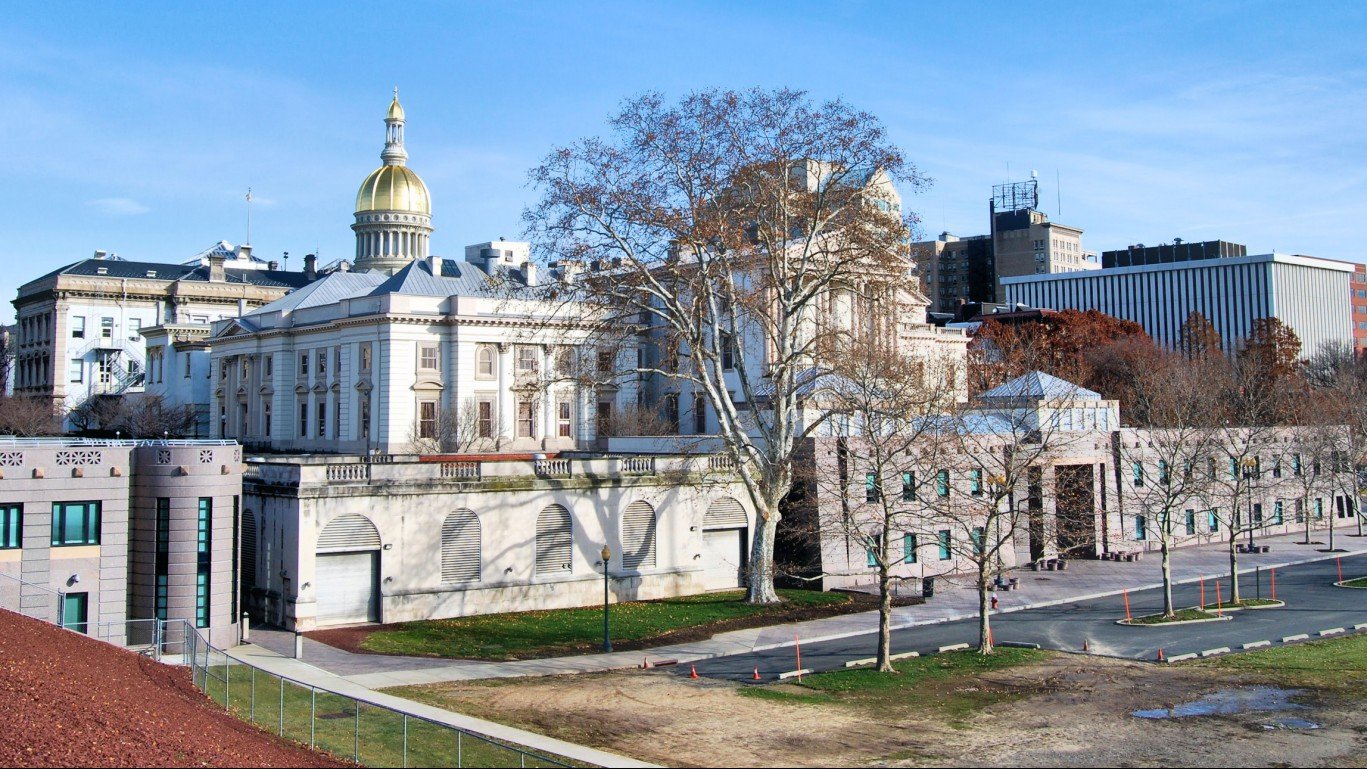
31. Trenton, NJ
> Libraries per 100,000 residents: 14.6
> Public libraries: 54
> Colleges and universities: 11
> Adults with high school diploma: 89.0%
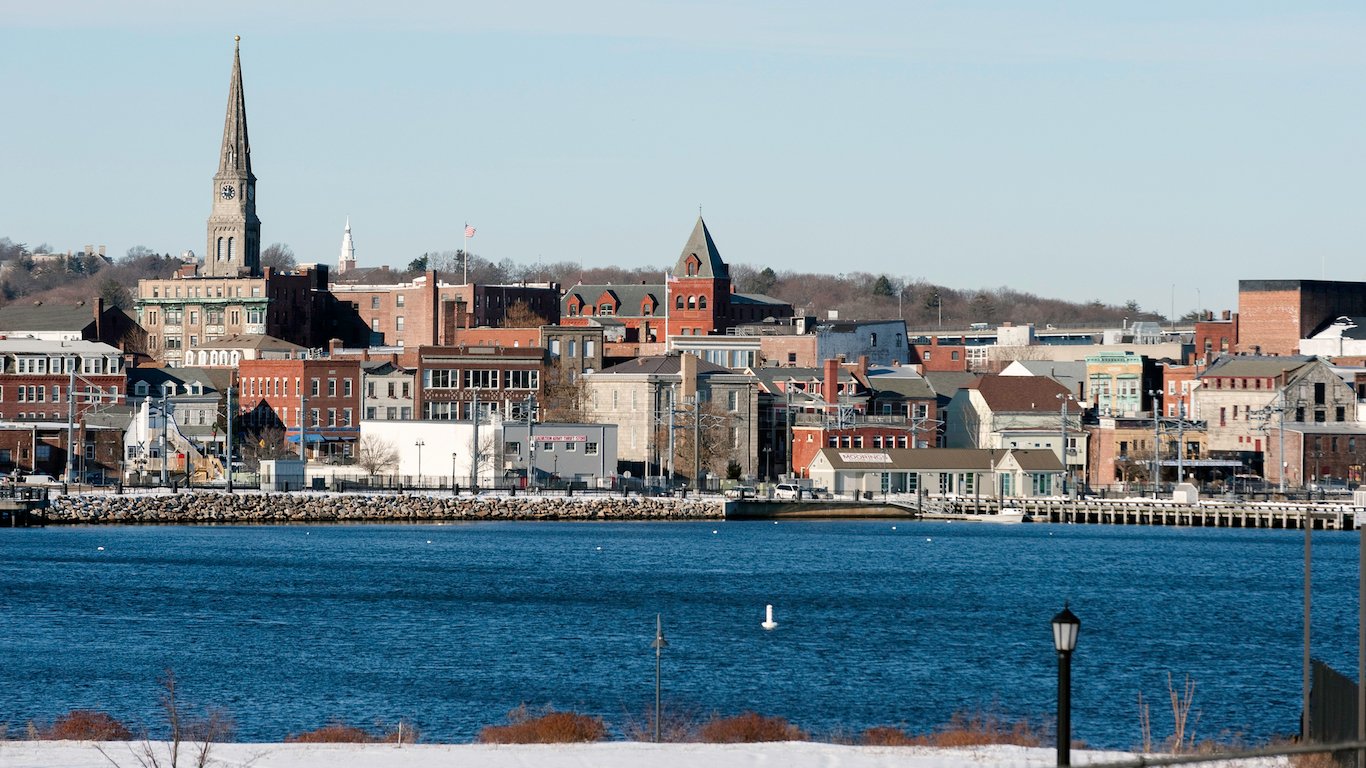
30. Norwich-New London, CT
> Libraries per 100,000 residents: 15.9
> Public libraries: 43
> Colleges and universities: 10
> Adults with high school diploma: 92.7%
[in-text-ad]
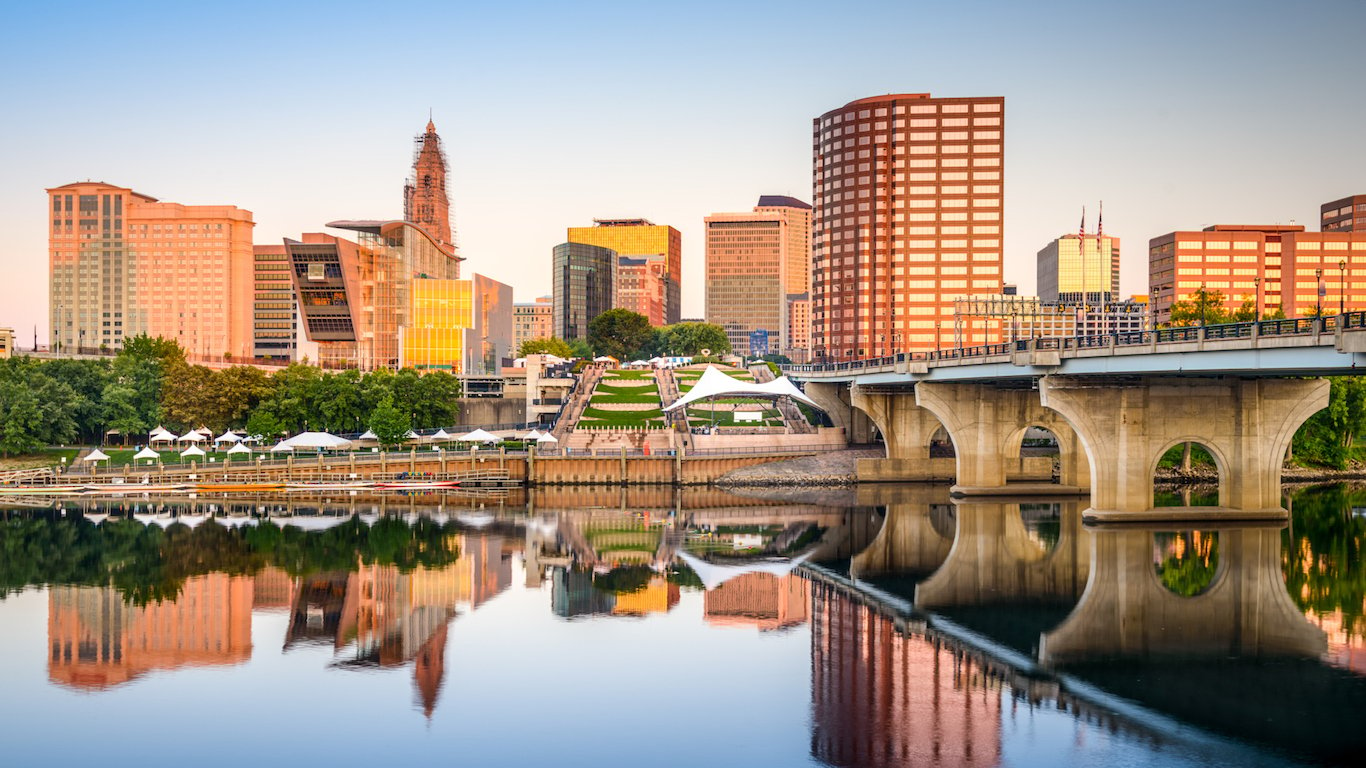
29. Hartford-West Hartford-East Hartford, CT
> Libraries per 100,000 residents: 14.4
> Public libraries: 174
> Colleges and universities: 36
> Adults with high school diploma: 90.8%
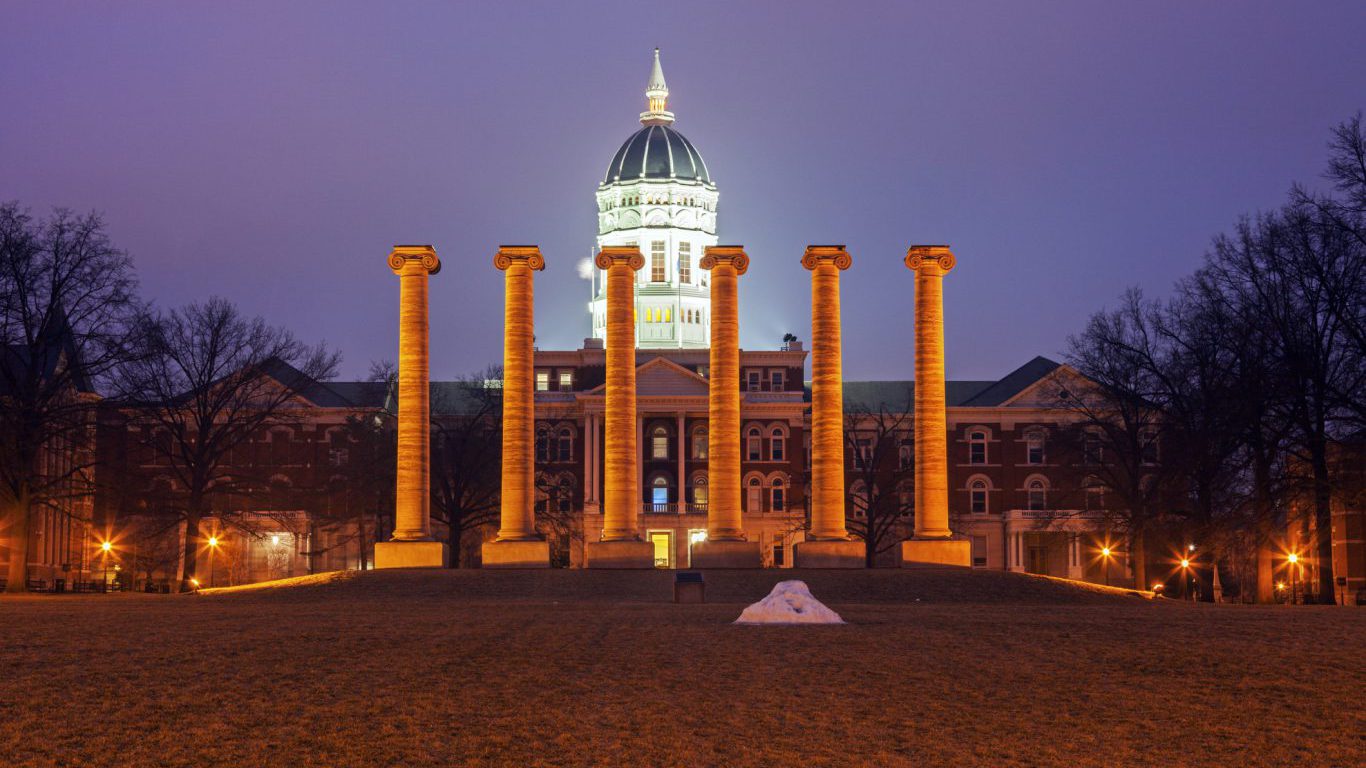
28. Columbia, MO
> Libraries per 100,000 residents: 13.0
> Public libraries: 23
> Colleges and universities: 7
> Adults with high school diploma: 94.7%
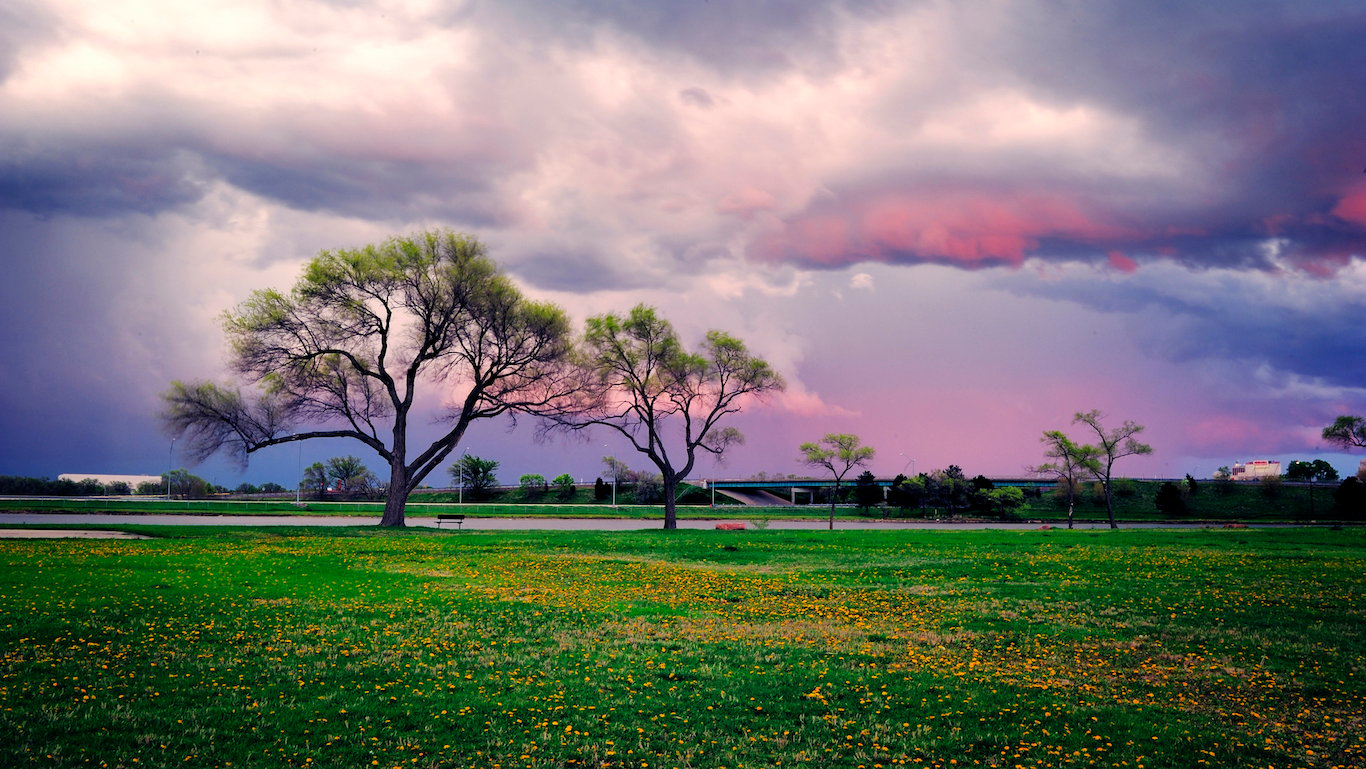
27. Lincoln, NE
> Libraries per 100,000 residents: 15.0
> Public libraries: 49
> Colleges and universities: 13
> Adults with high school diploma: 93.0%
[in-text-ad-2]

26. Dubuque, IA
> Libraries per 100,000 residents: 18.6
> Public libraries: 18
> Colleges and universities: 7
> Adults with high school diploma: 92.8%
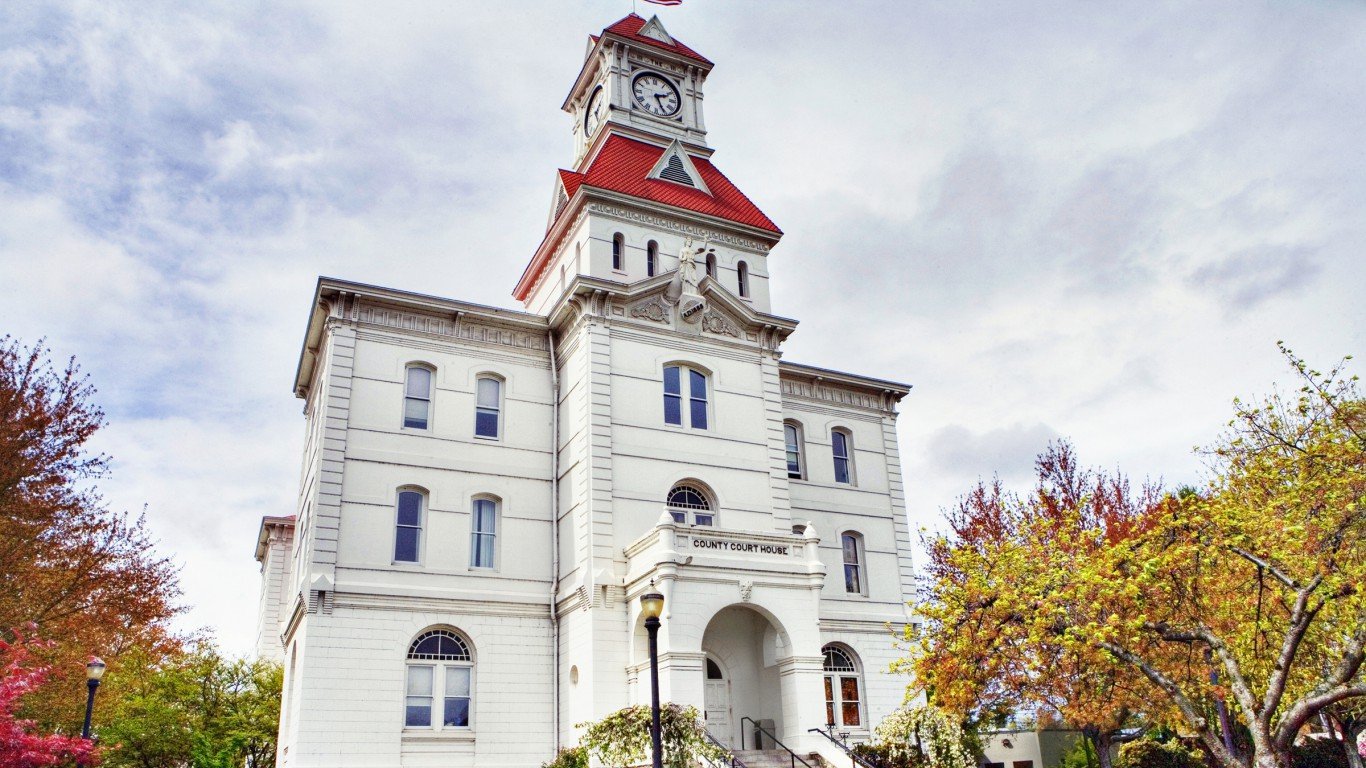
25. Corvallis, OR
> Libraries per 100,000 residents: 10.1
> Public libraries: 9
> Colleges and universities: 2
> Adults with high school diploma: 95.8%
[in-text-ad]
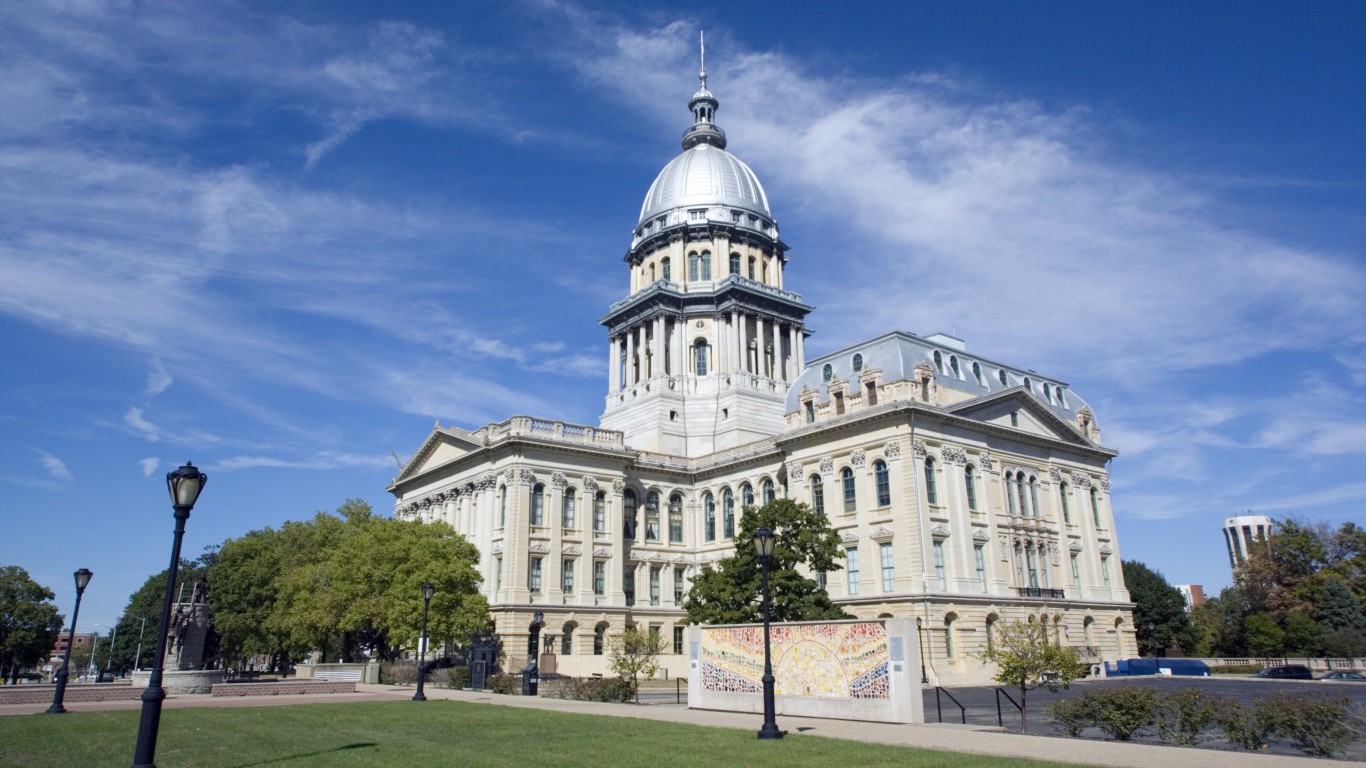
24. Springfield, IL
> Libraries per 100,000 residents: 17.1
> Public libraries: 36
> Colleges and universities: 8
> Adults with high school diploma: 92.3%
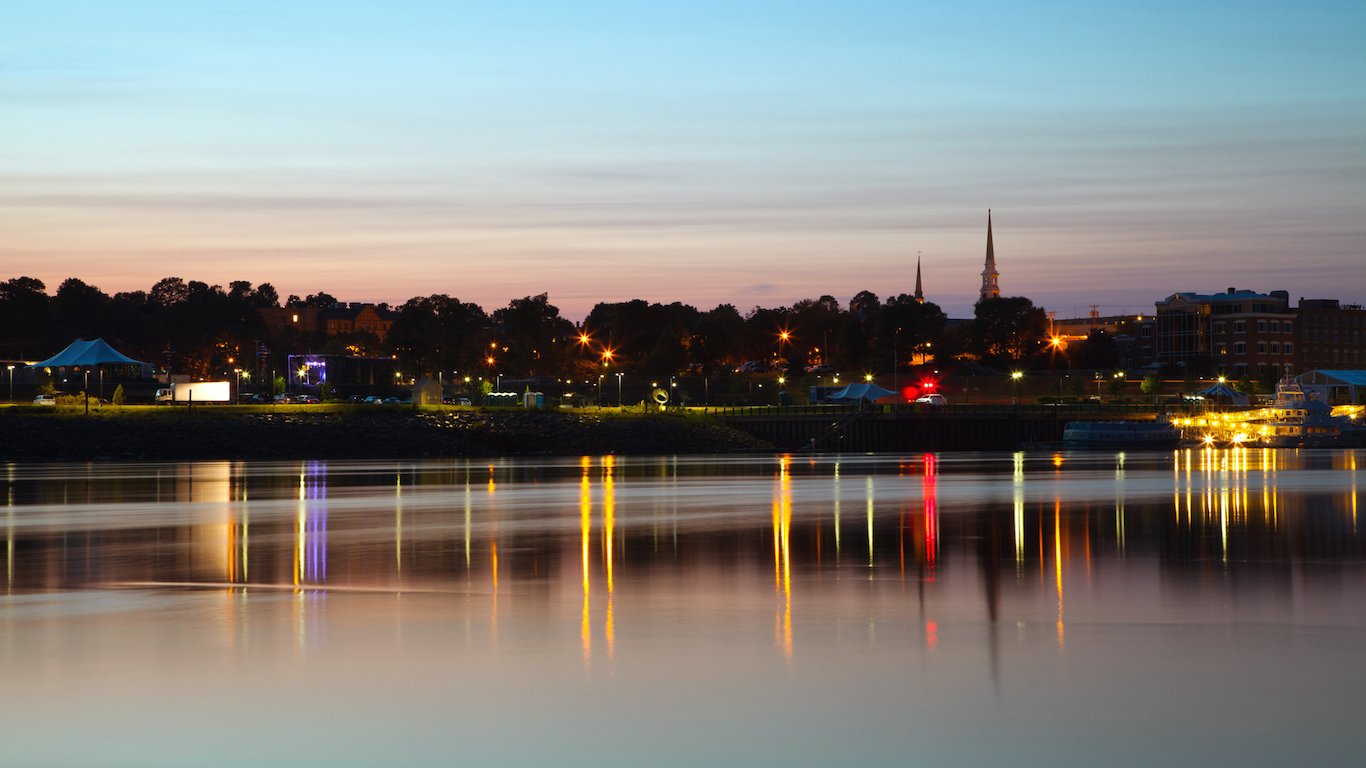
23. Bangor, ME
> Libraries per 100,000 residents: 20.4
> Public libraries: 31
> Colleges and universities: 7
> Adults with high school diploma: 93.3%
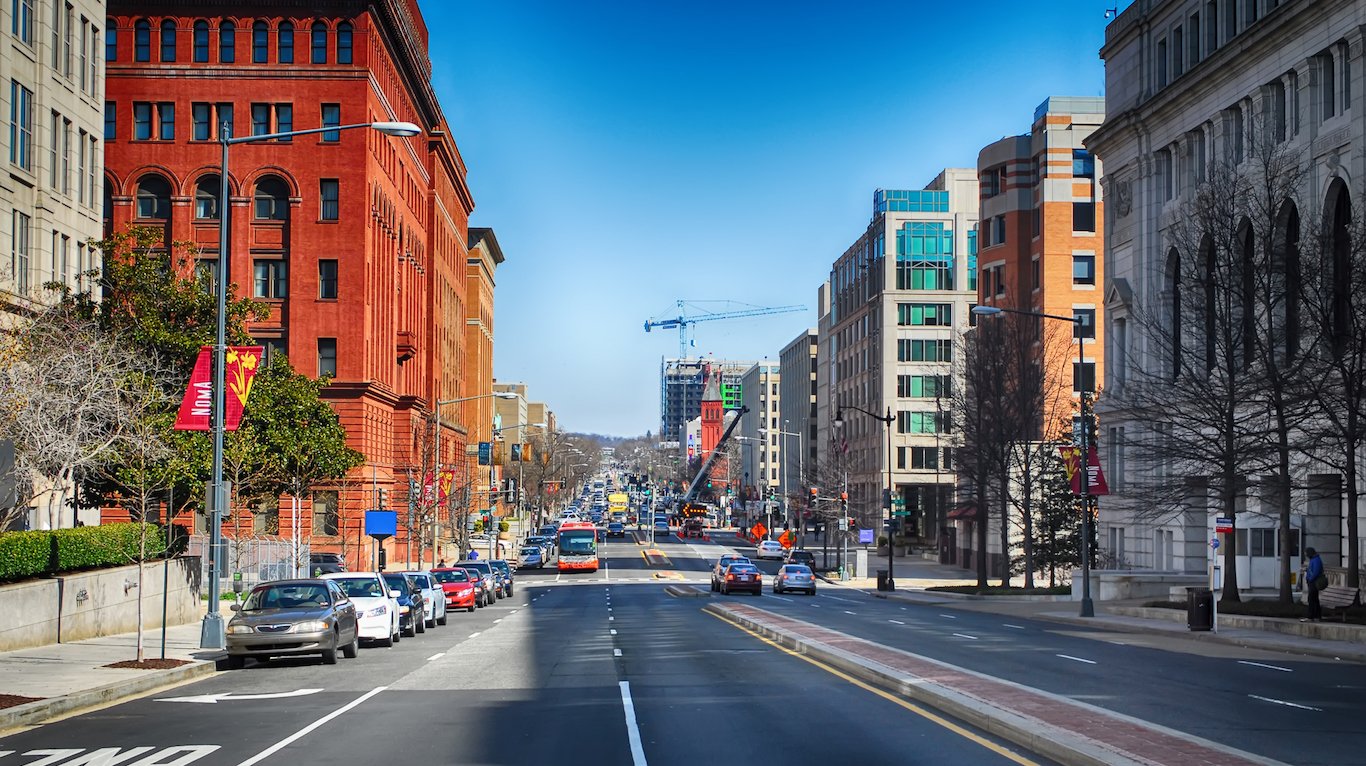
22. Washington-Arlington-Alexandria, DC-VA-MD-WV
> Libraries per 100,000 residents: 11.0
> Public libraries: 673
> Colleges and universities: 111
> Adults with high school diploma: 90.6%
[in-text-ad-2]
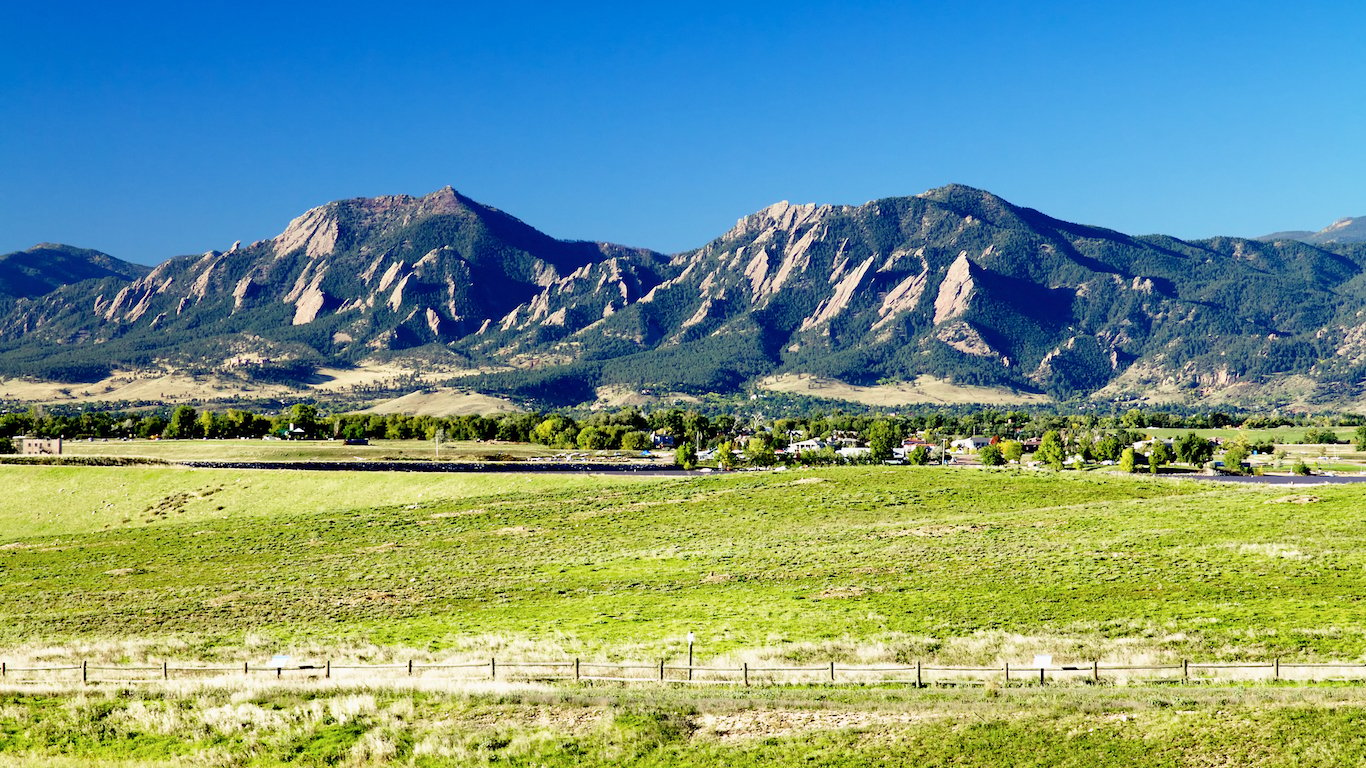
21. Boulder, CO
> Libraries per 100,000 residents: 9.6
> Public libraries: 31
> Colleges and universities: 9
> Adults with high school diploma: 95.1%
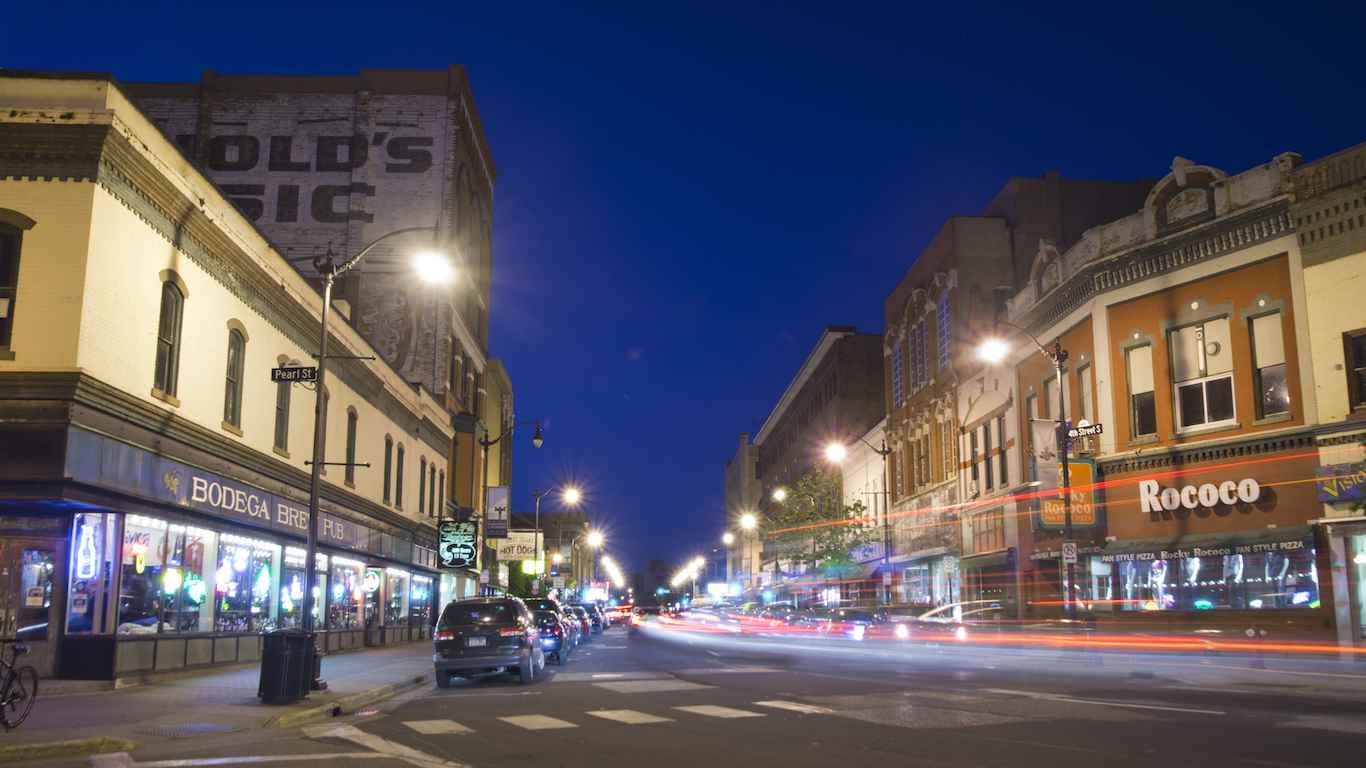
20. La Crosse-Onalaska, WI-MN
> Libraries per 100,000 residents: 17.5
> Public libraries: 24
> Colleges and universities: 5
> Adults with high school diploma: 94.6%
[in-text-ad]
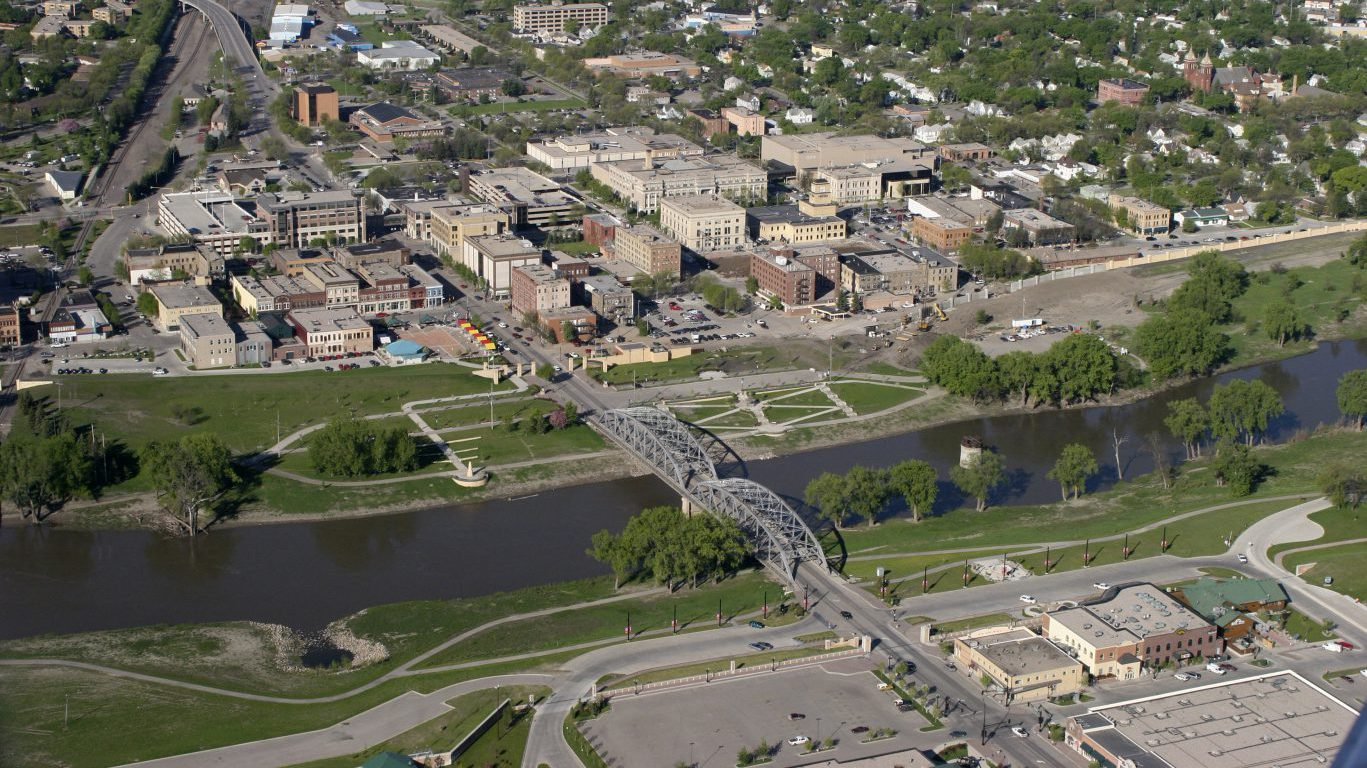
19. Grand Forks, ND-MN
> Libraries per 100,000 residents: 19.5
> Public libraries: 20
> Colleges and universities: 3
> Adults with high school diploma: 93.7%
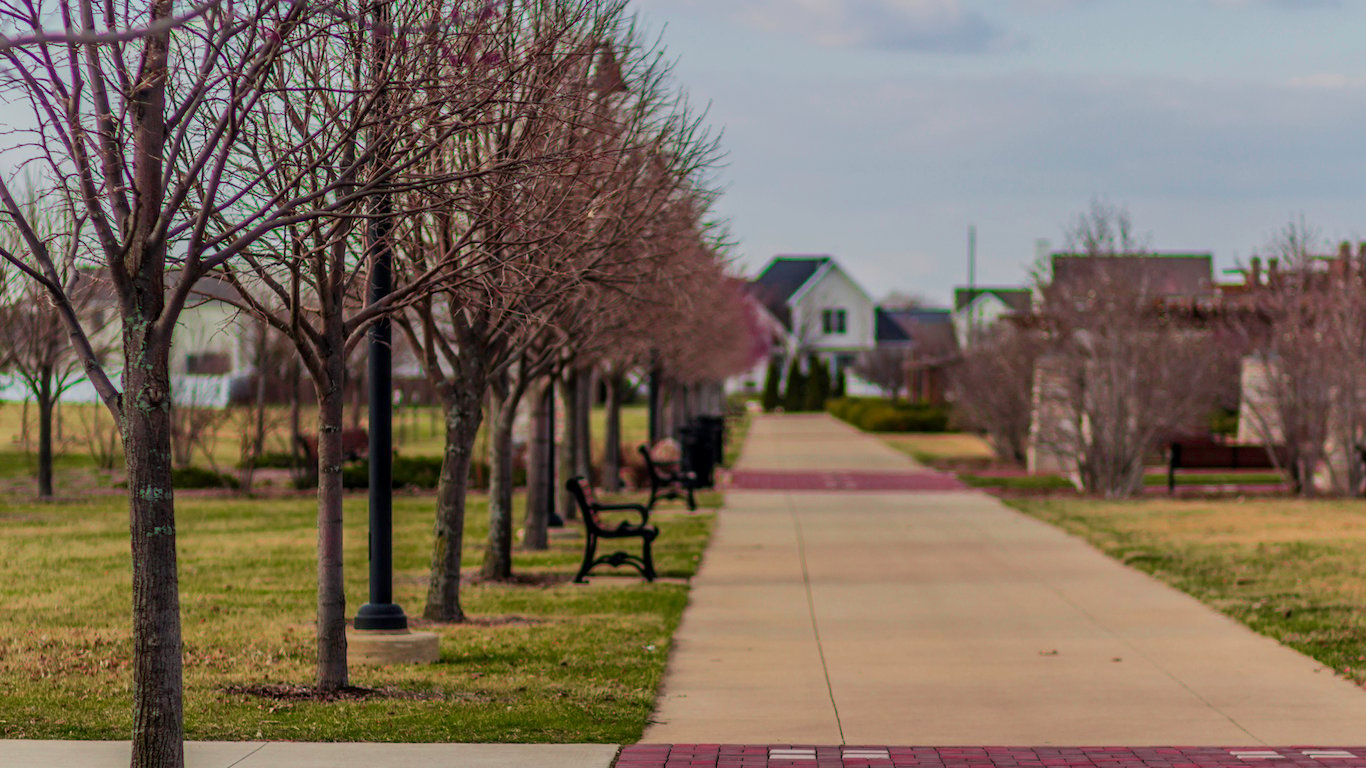
18. Bloomington, IL
> Libraries per 100,000 residents: 14.8
> Public libraries: 28
> Colleges and universities: 5
> Adults with high school diploma: 96.1%

17. New York-Newark-Jersey City, NY-NJ-PA
> Libraries per 100,000 residents: 6.6
> Public libraries: 1326
> Colleges and universities: 416
> Adults with high school diploma: 86.1%
[in-text-ad-2]
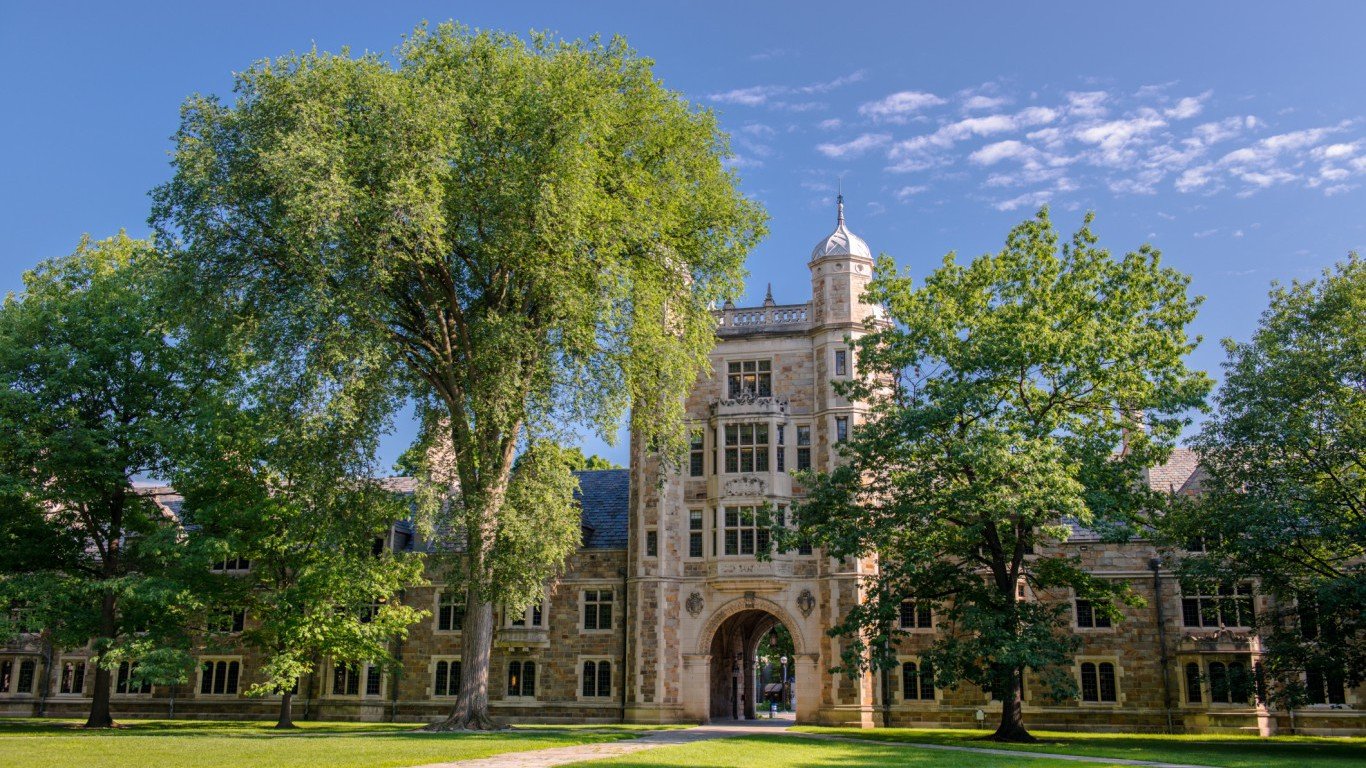
16. Ann Arbor, MI
> Libraries per 100,000 residents: 12.1
> Public libraries: 44
> Colleges and universities: 8
> Adults with high school diploma: 95.4%
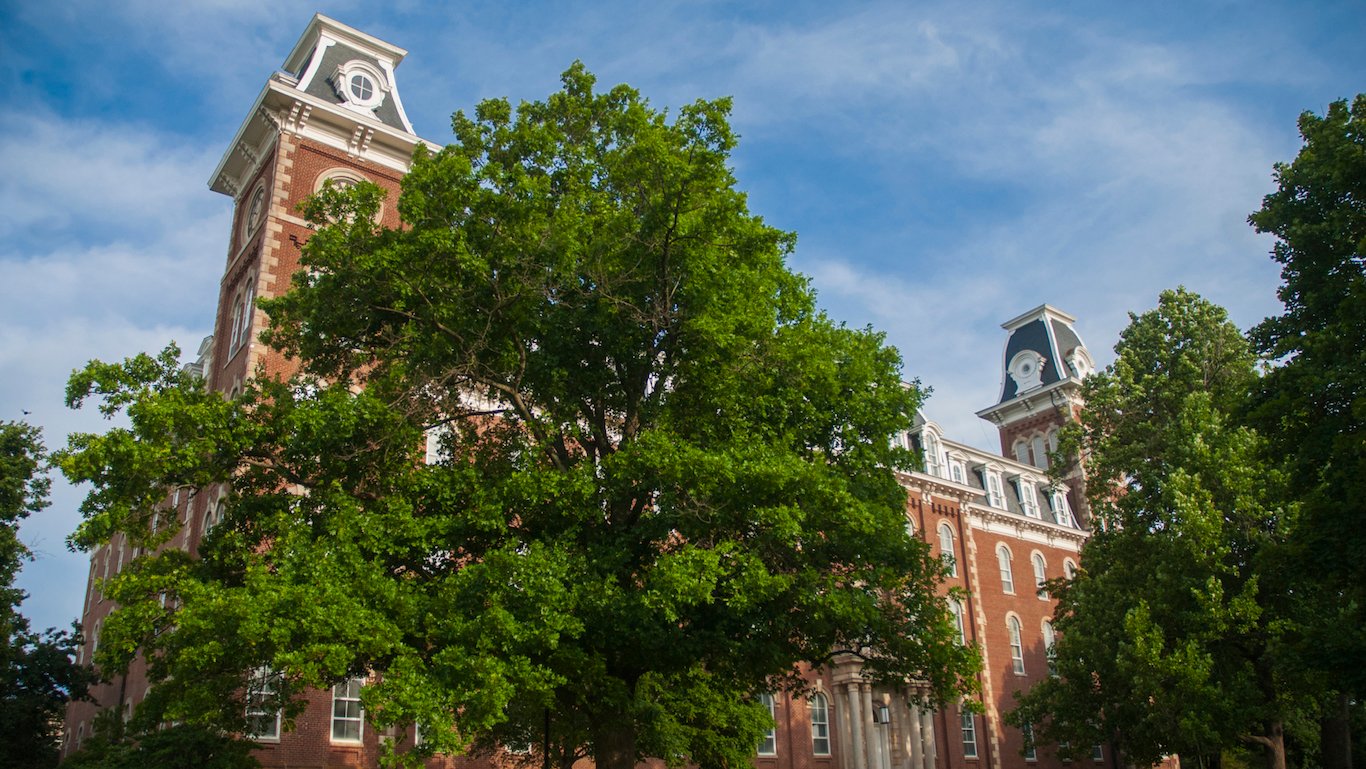
15. Lawrence, KS
> Libraries per 100,000 residents: 13.4
> Public libraries: 16
> Colleges and universities: 6
> Adults with high school diploma: 95.0%
[in-text-ad]
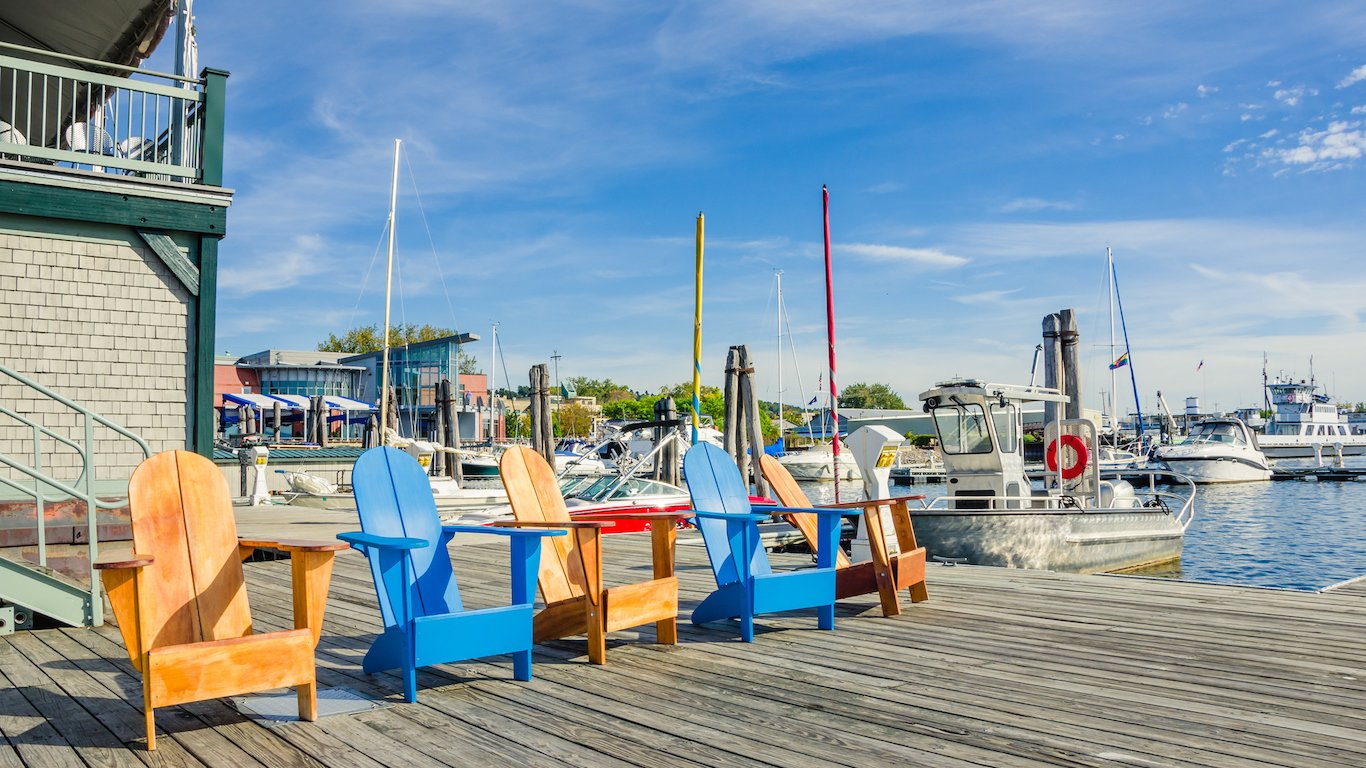
14. Burlington-South Burlington, VT
> Libraries per 100,000 residents: 16.6
> Public libraries: 36
> Colleges and universities: 8
> Adults with high school diploma: 93.7%
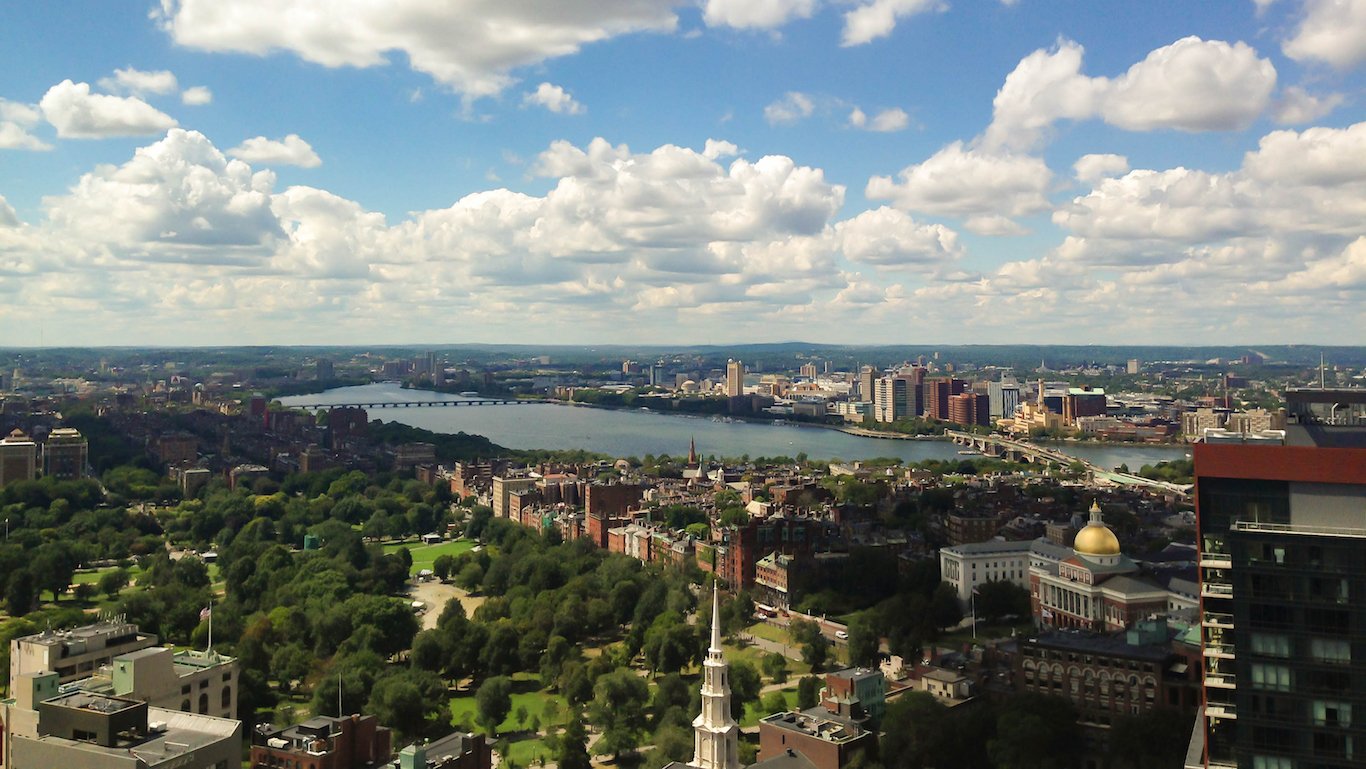
13. Boston-Cambridge-Newton, MA-NH
> Libraries per 100,000 residents: 12.4
> Public libraries: 596
> Colleges and universities: 134
> Adults with high school diploma: 91.4%
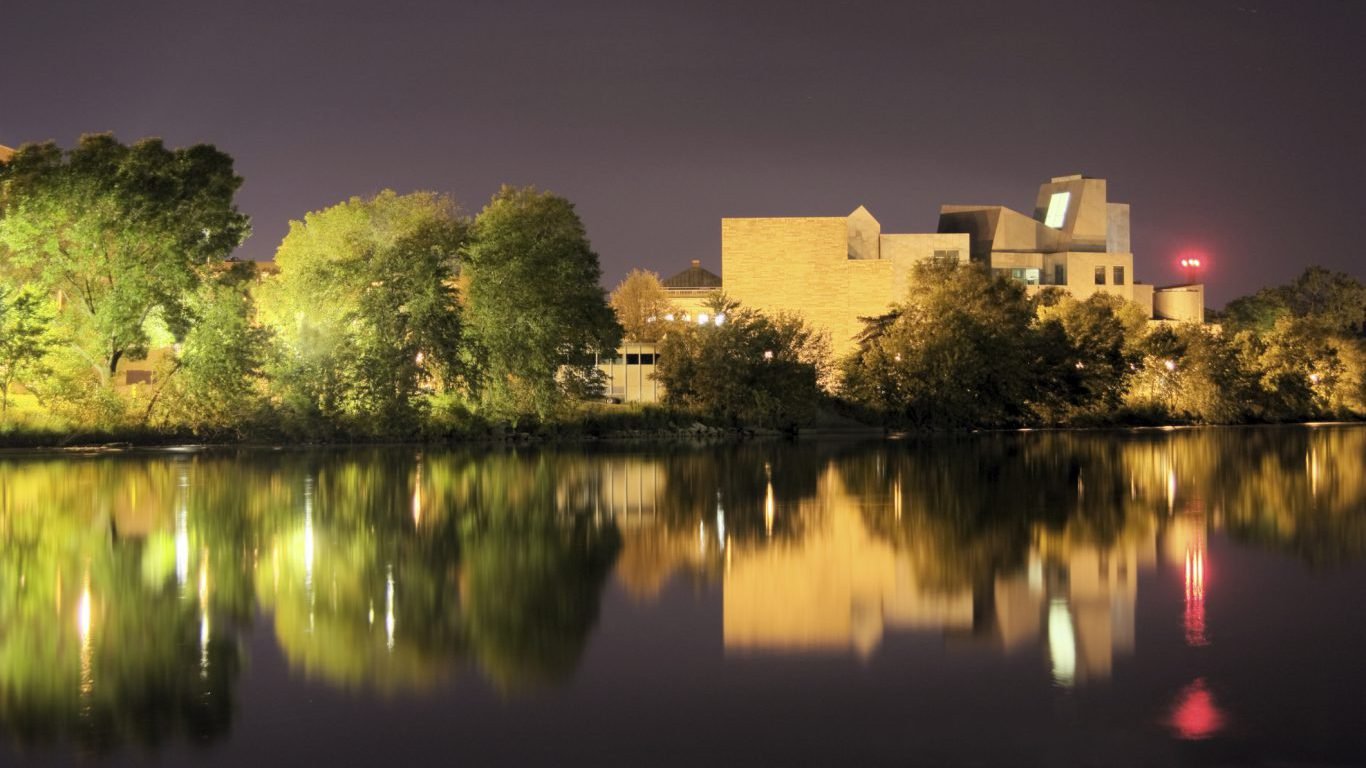
12. Iowa City, IA
> Libraries per 100,000 residents: 15.4
> Public libraries: 26
> Colleges and universities: 4
> Adults with high school diploma: 94.0%
[in-text-ad-2]
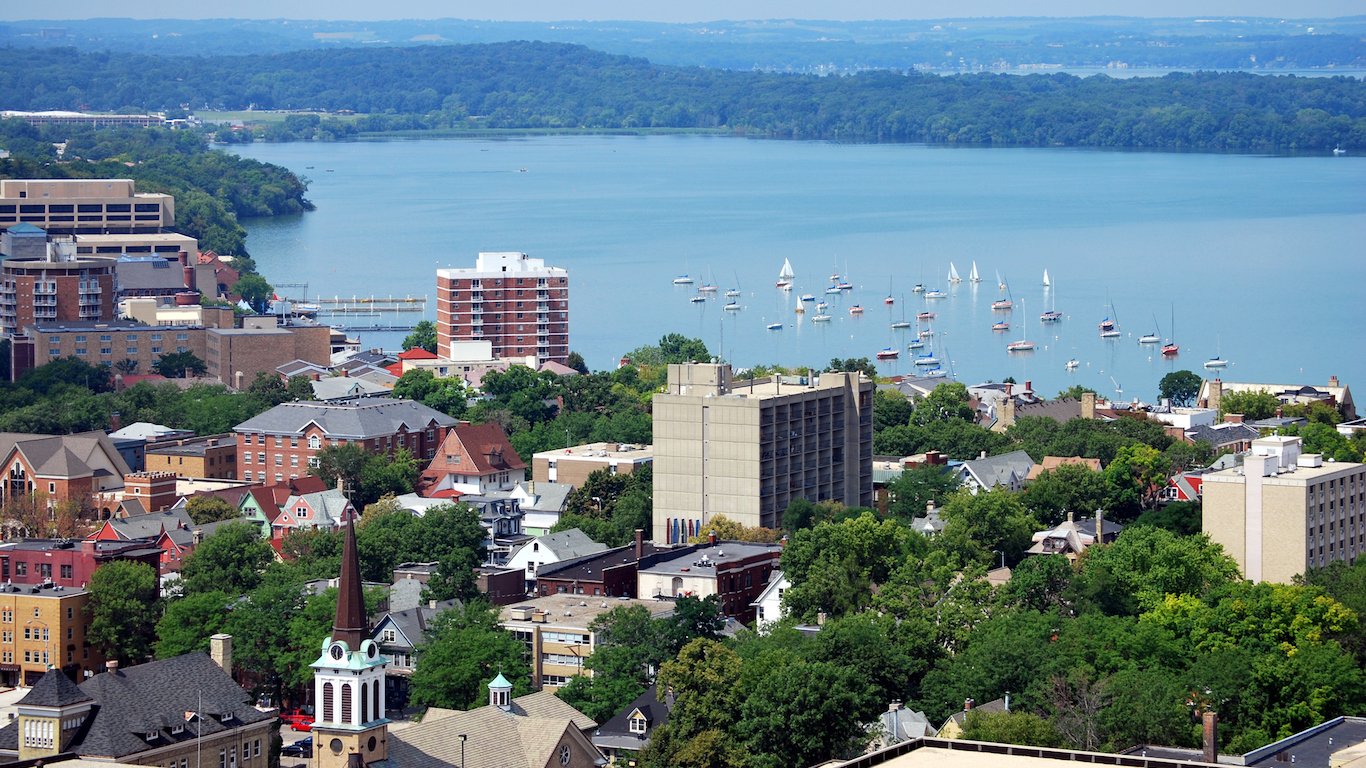
11. Madison, WI
> Libraries per 100,000 residents: 15.6
> Public libraries: 101
> Colleges and universities: 17
> Adults with high school diploma: 95.6%
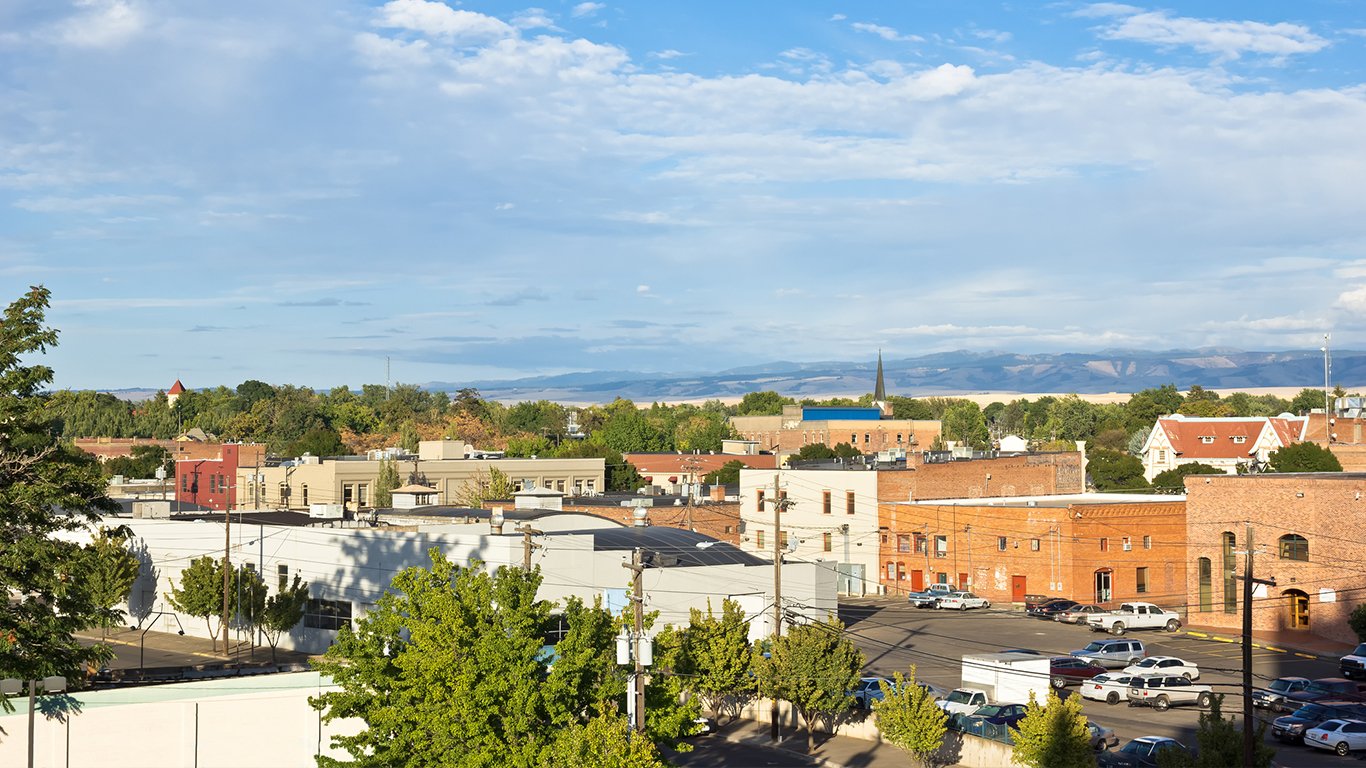
10. Walla Walla, WA
> Libraries per 100,000 residents: 24.9
> Public libraries: 16
> Colleges and universities: 3
> Adults with high school diploma: 87.1%
[in-text-ad]
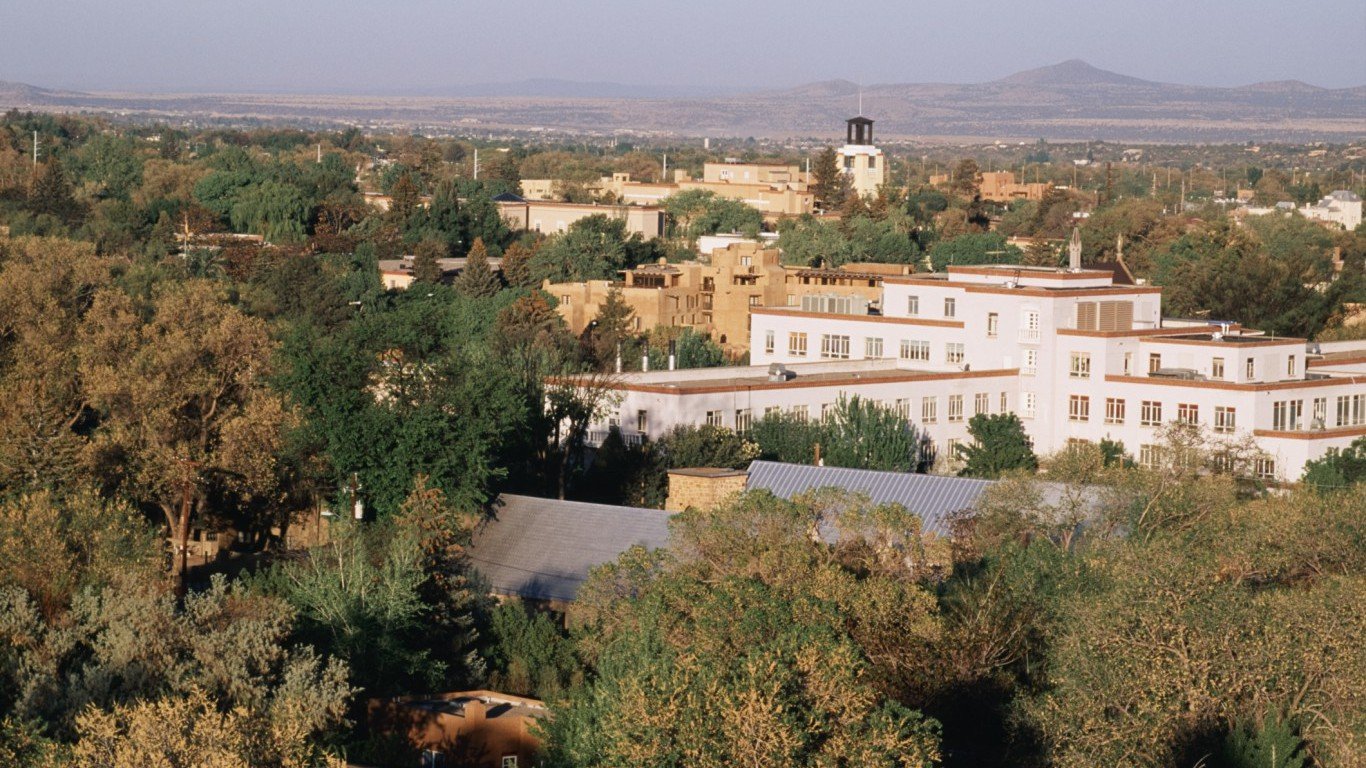
9. Santa Fe, NM
> Libraries per 100,000 residents: 20.2
> Public libraries: 30
> Colleges and universities: 7
> Adults with high school diploma: 89.7%
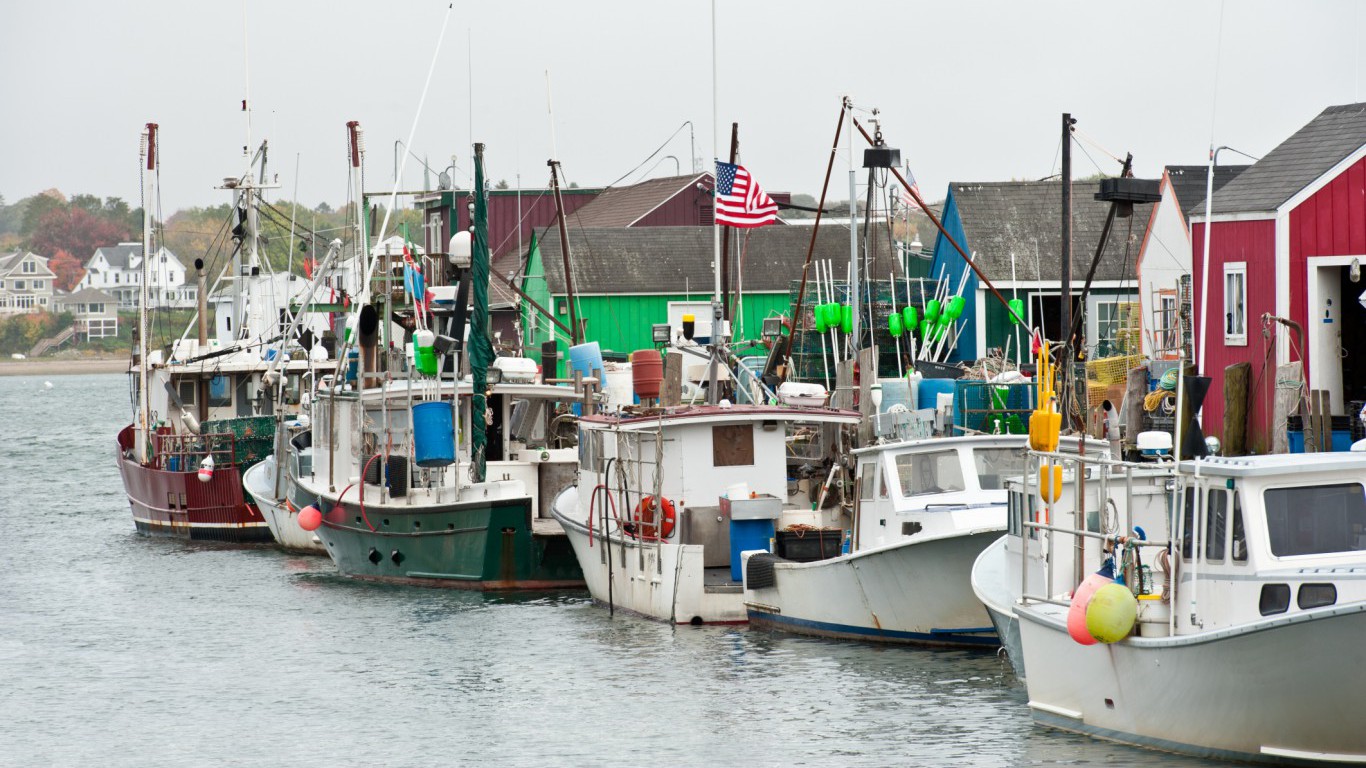
8. Portland-South Portland, ME
> Libraries per 100,000 residents: 18.7
> Public libraries: 99
> Colleges and universities: 17
> Adults with high school diploma: 94.3%
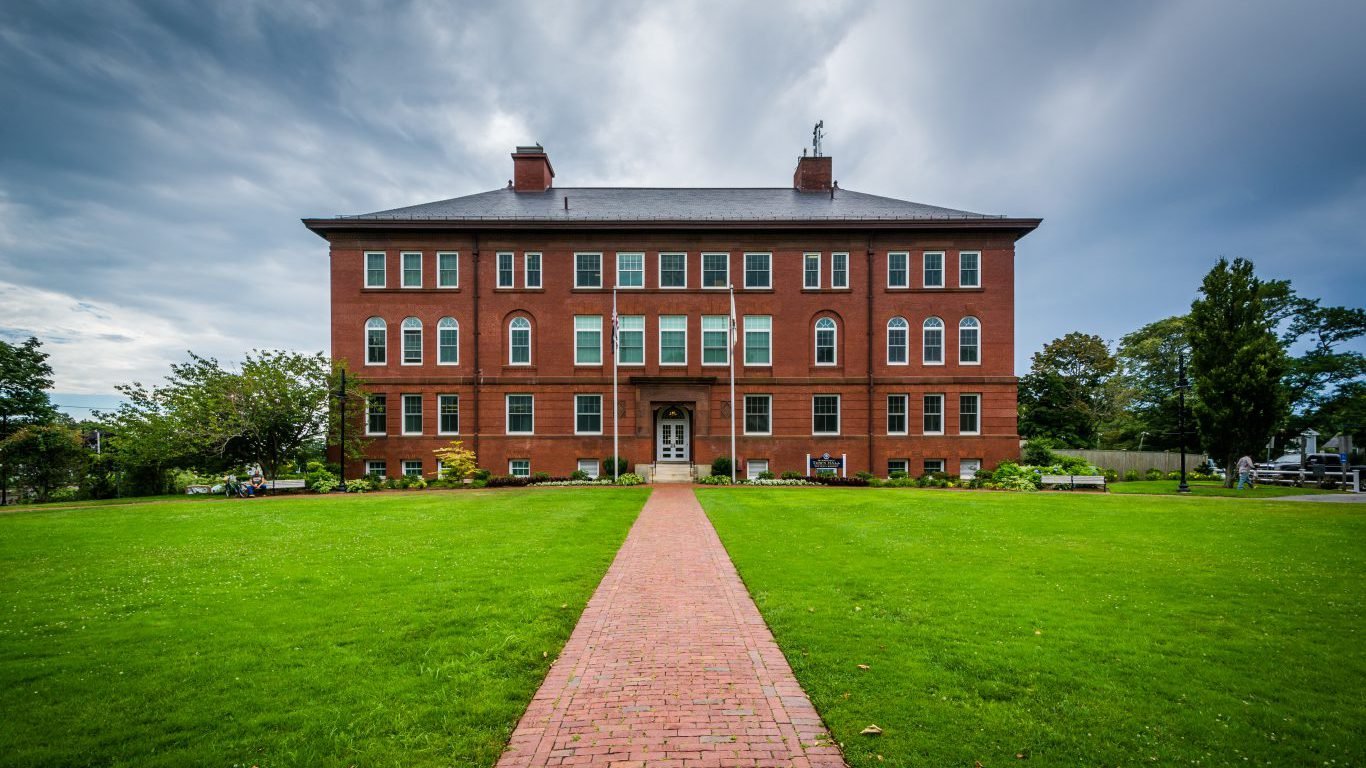
7. Barnstable Town, MA
> Libraries per 100,000 residents: 18.2
> Public libraries: 39
> Colleges and universities: 5
> Adults with high school diploma: 95.8%
[in-text-ad-2]
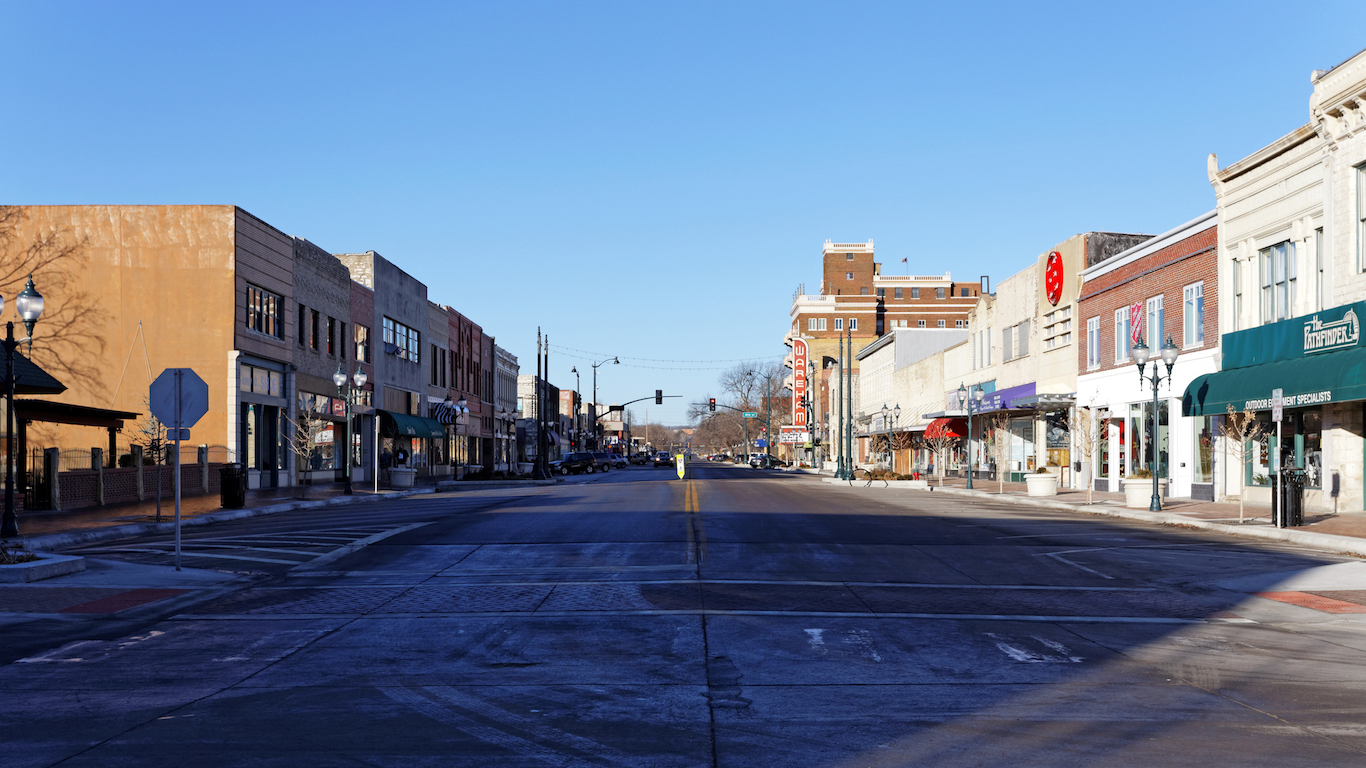
6. Manhattan, KS
> Libraries per 100,000 residents: 18.6
> Public libraries: 18
> Colleges and universities: 5
> Adults with high school diploma: 97.0%
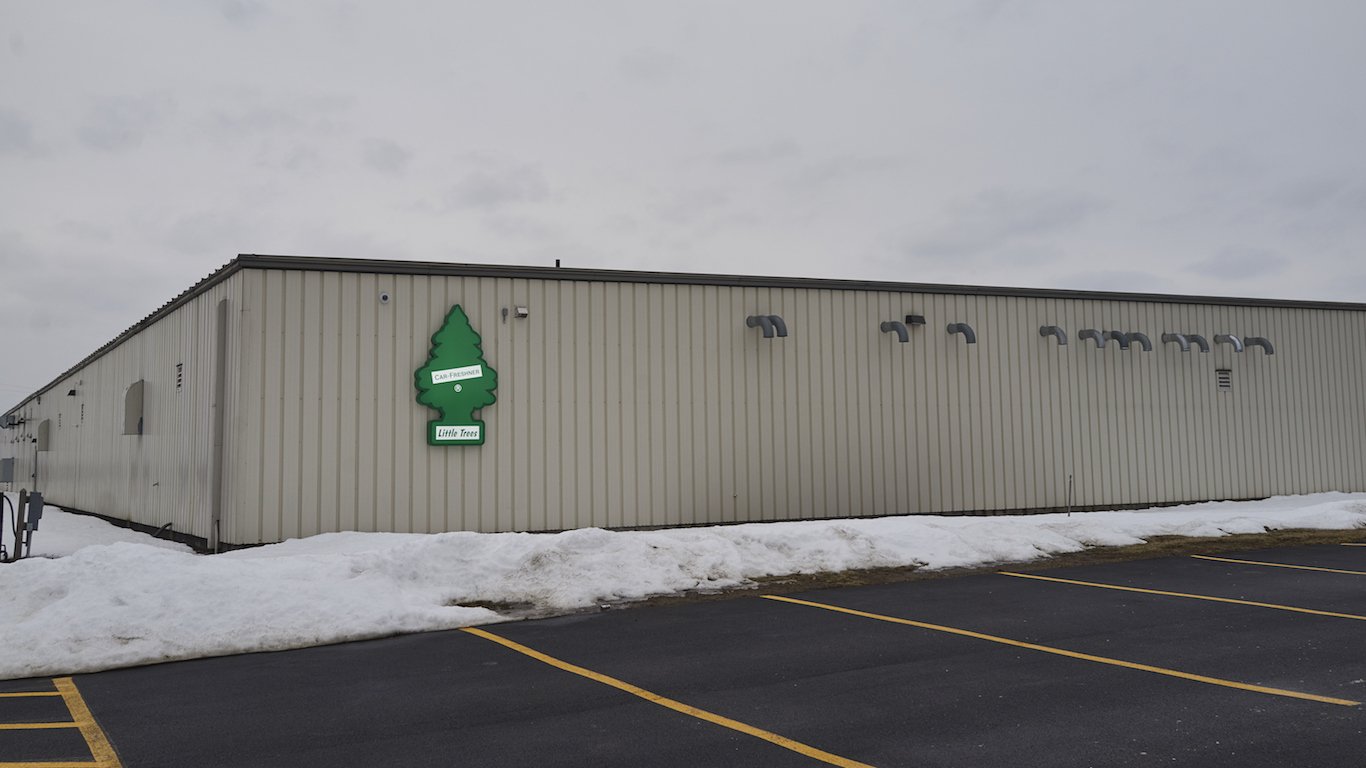
5. Watertown-Fort Drum, NY
> Libraries per 100,000 residents: 29.8
> Public libraries: 34
> Colleges and universities: 2
> Adults with high school diploma: 91.6%
[in-text-ad]
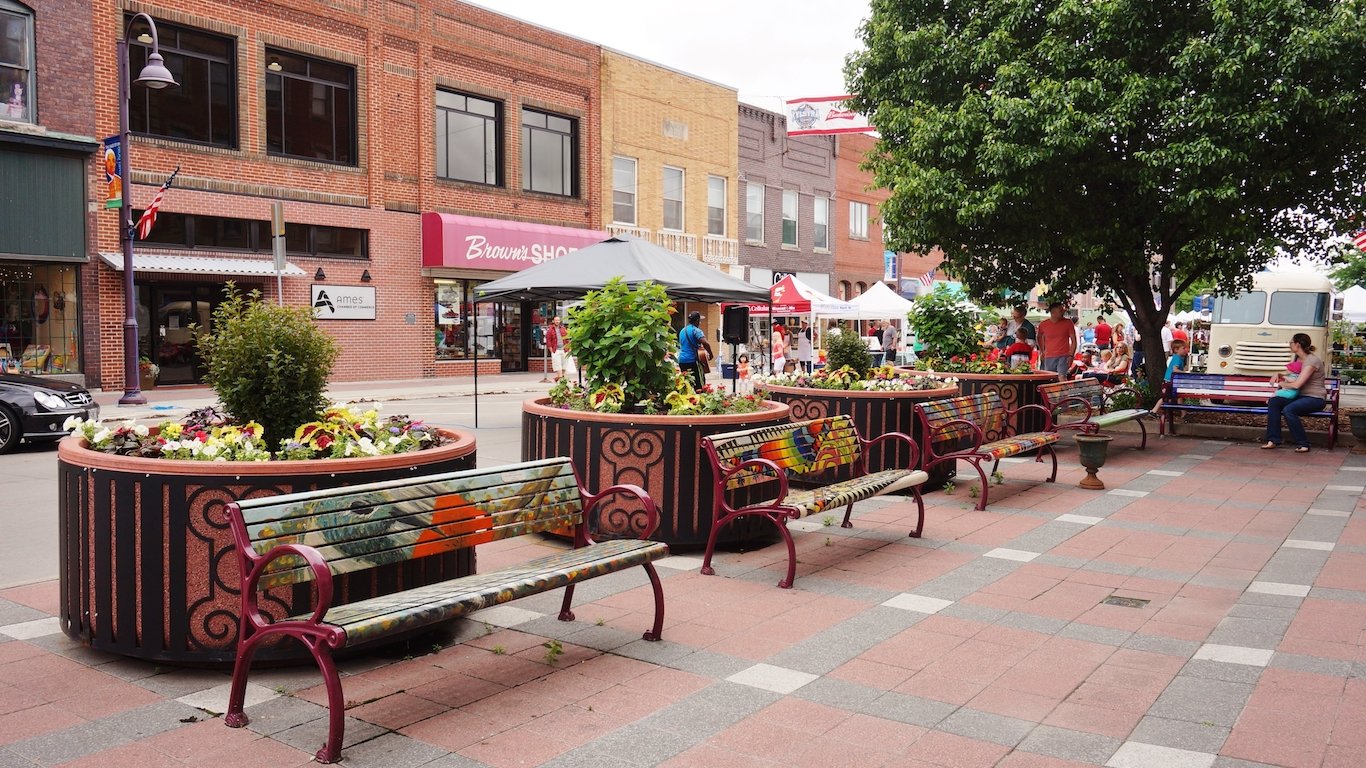
4. Ames, IA
> Libraries per 100,000 residents: 18.5
> Public libraries: 18
> Colleges and universities: 2
> Adults with high school diploma: 97.5%
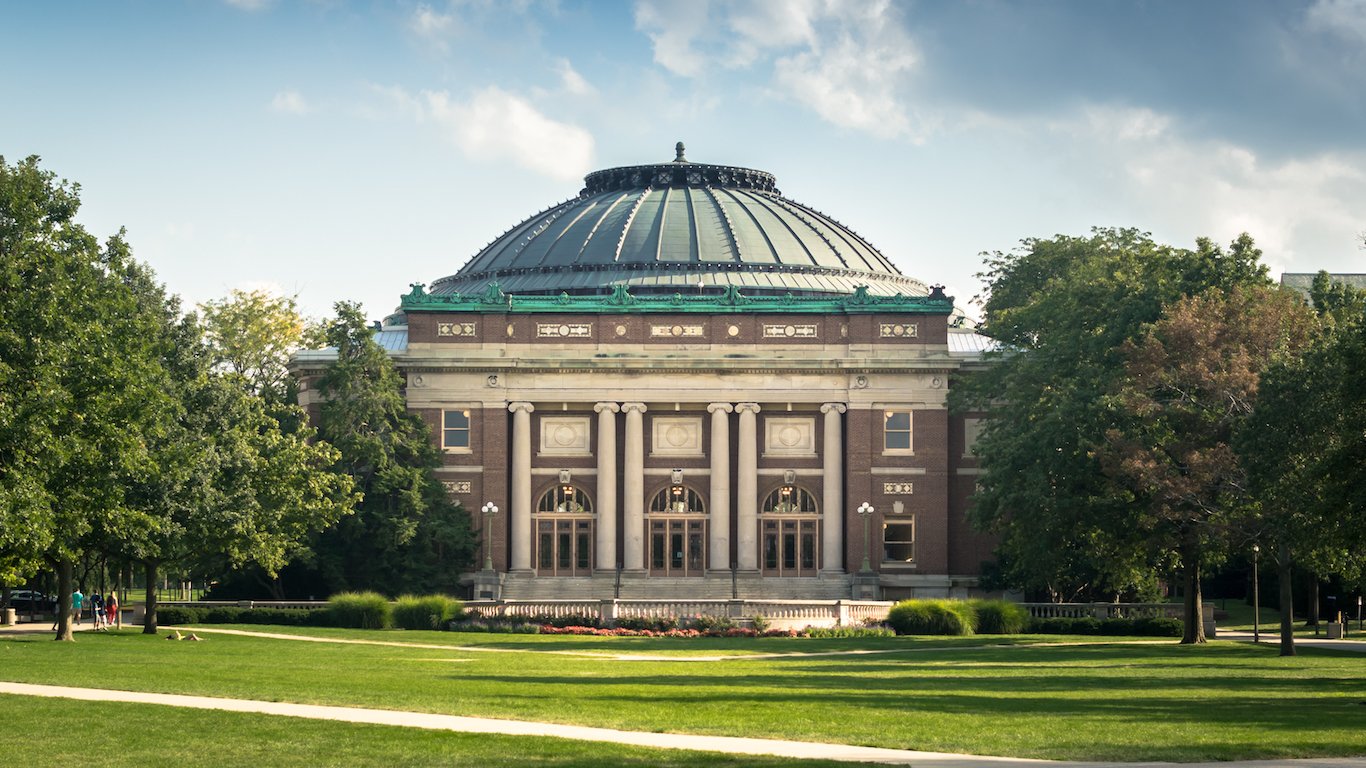
3. Champaign-Urbana, IL
> Libraries per 100,000 residents: 24.3
> Public libraries: 58
> Colleges and universities: 5
> Adults with high school diploma: 94.9%
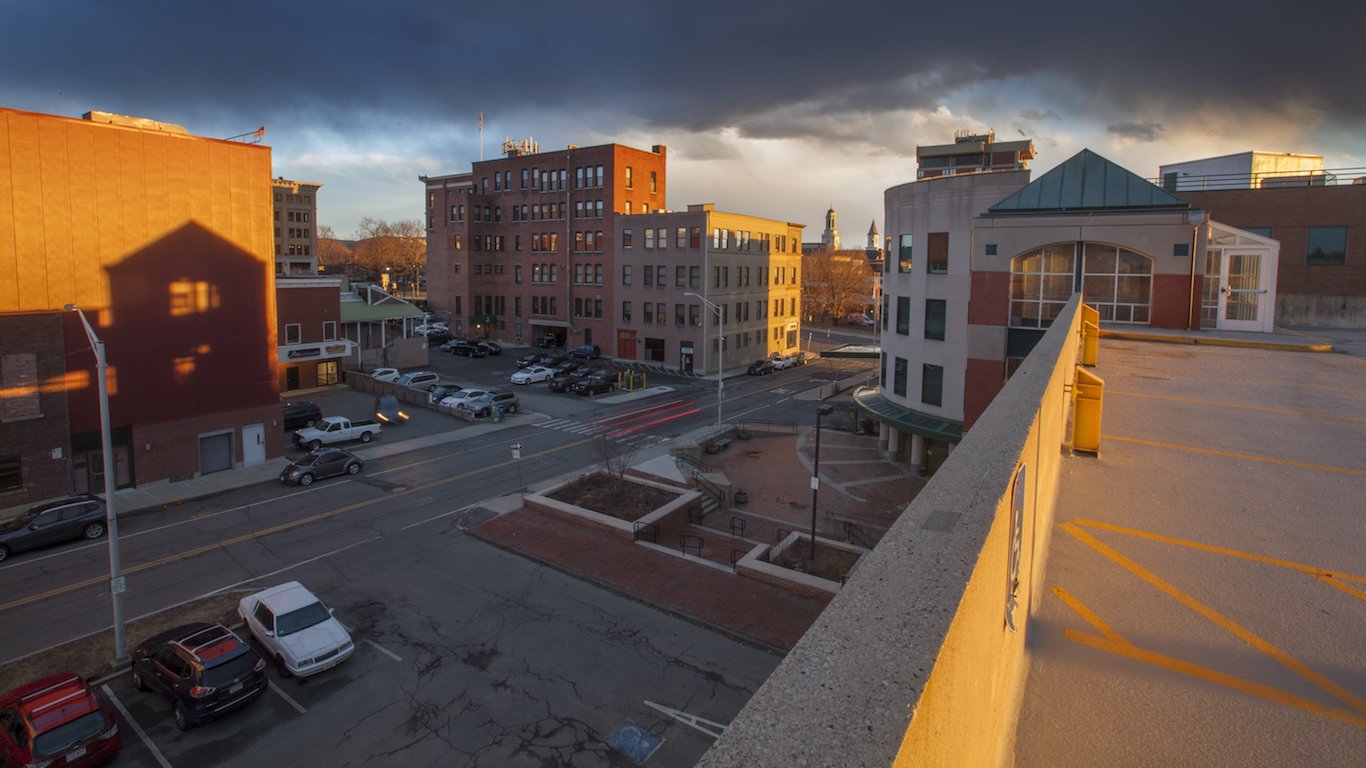
2. Pittsfield, MA
> Libraries per 100,000 residents: 29.9
> Public libraries: 38
> Colleges and universities: 6
> Adults with high school diploma: 91.3%
[in-text-ad-2]
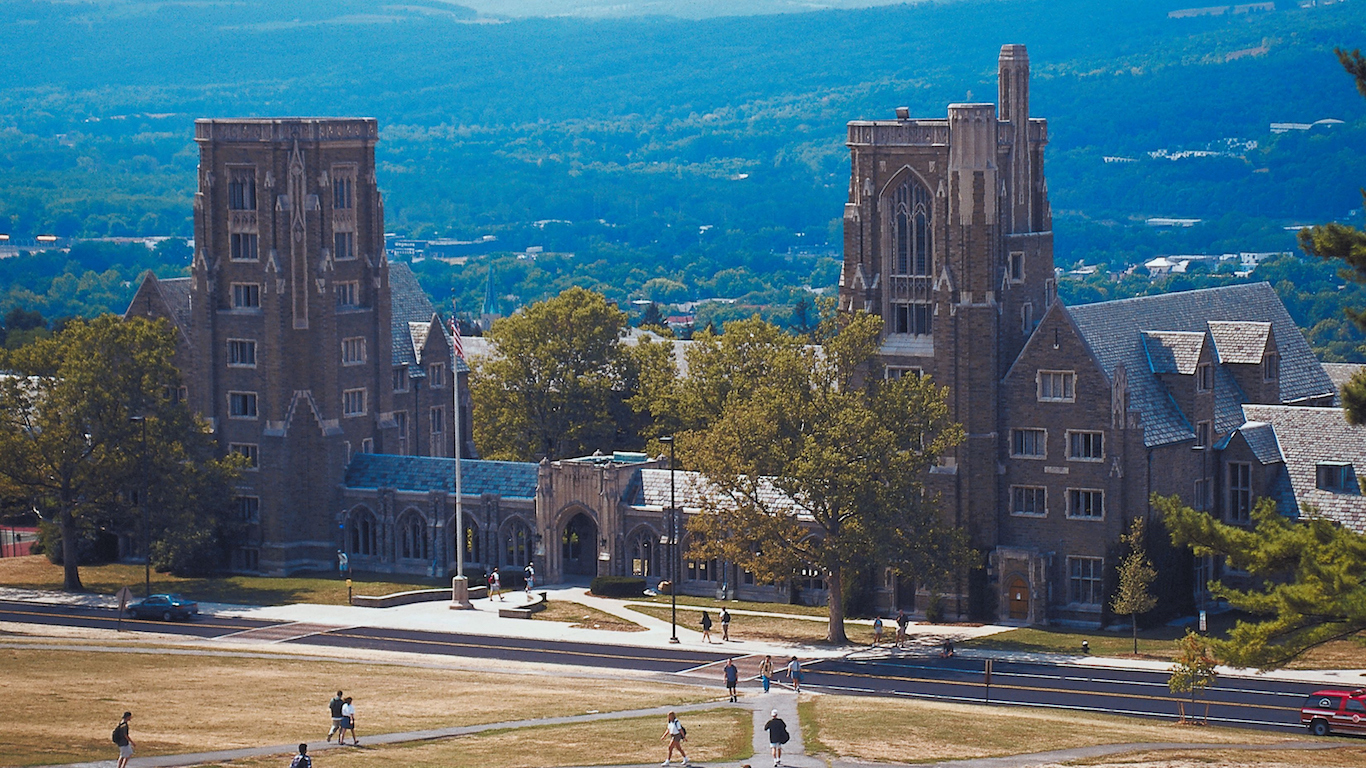
1. Ithaca, NY
> Libraries per 100,000 residents: 26.7
> Public libraries: 28
> Colleges and universities: 4
> Adults with high school diploma: 94.6%
Sponsored: Want to Retire Early? Here’s a Great First Step
Want retirement to come a few years earlier than you’d planned? Or are you ready to retire now, but want an extra set of eyes on your finances?
Now you can speak with up to 3 financial experts in your area for FREE. By simply clicking here you can begin to match with financial professionals who can help you build your plan to retire early. And the best part? The first conversation with them is free.
Click here to match with up to 3 financial pros who would be excited to help you make financial decisions.
Thank you for reading! Have some feedback for us?
Contact the 24/7 Wall St. editorial team.
 24/7 Wall St.
24/7 Wall St. 24/7 Wall St.
24/7 Wall St. 24/7 Wall St.
24/7 Wall St.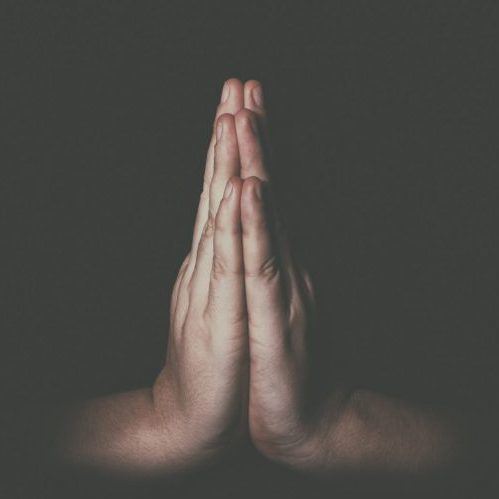 24/7 Wall St.
24/7 Wall St. 24/7 Wall St.
24/7 Wall St.
